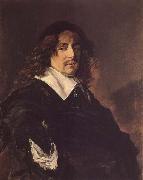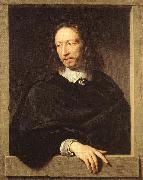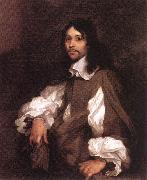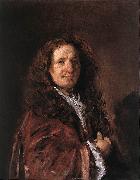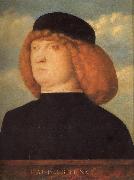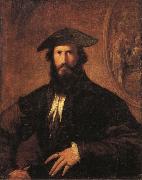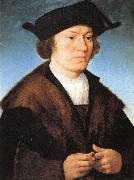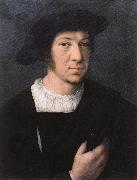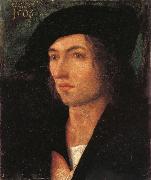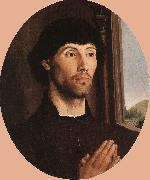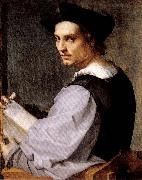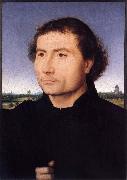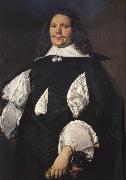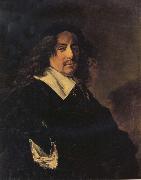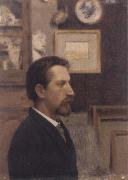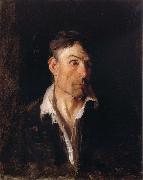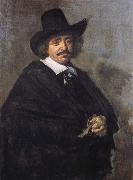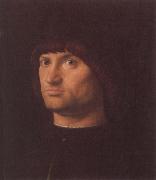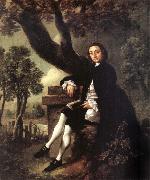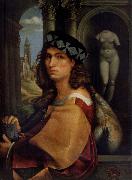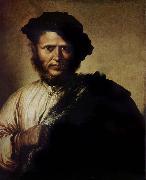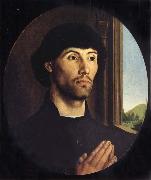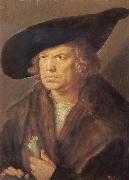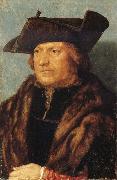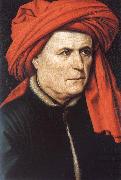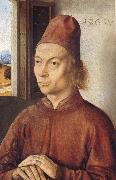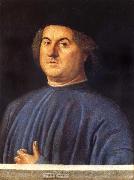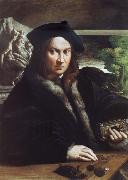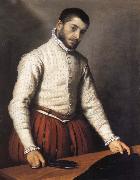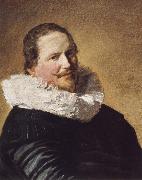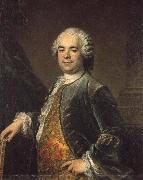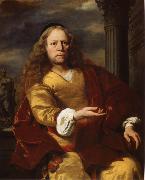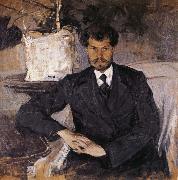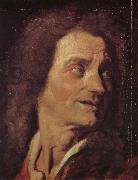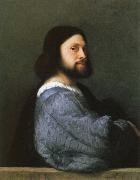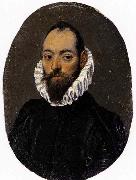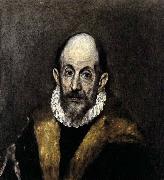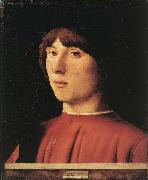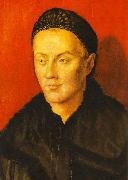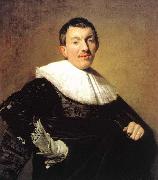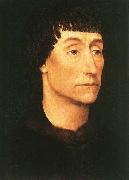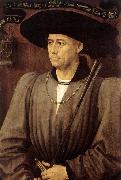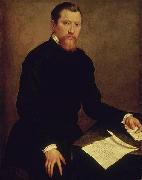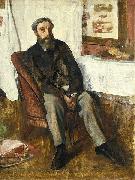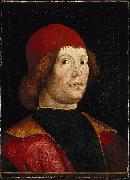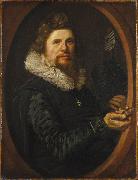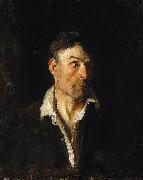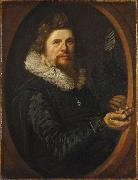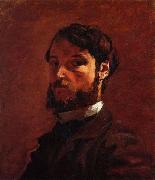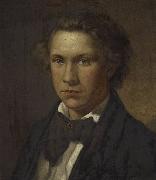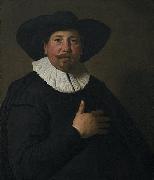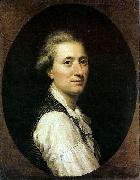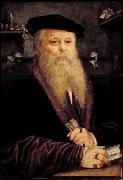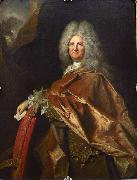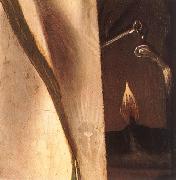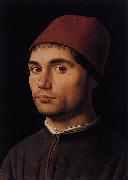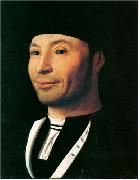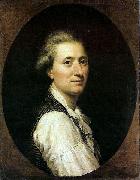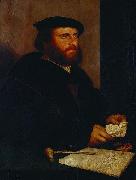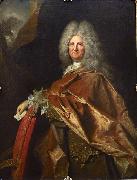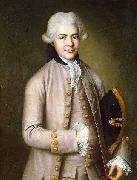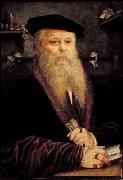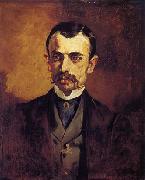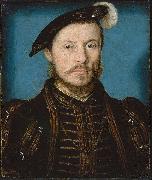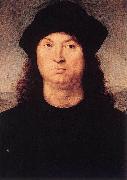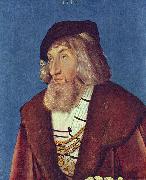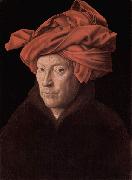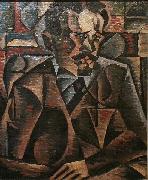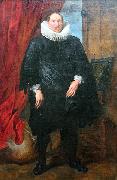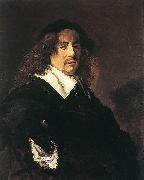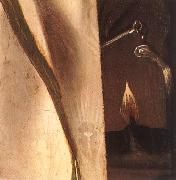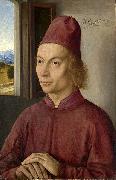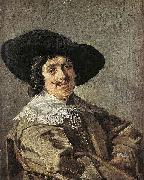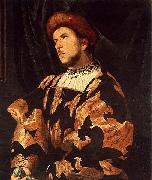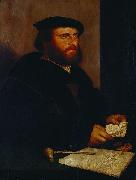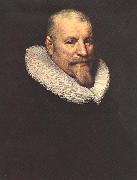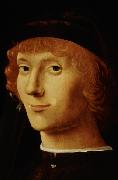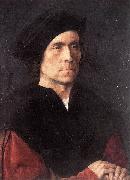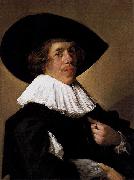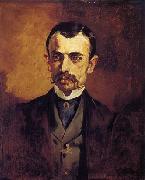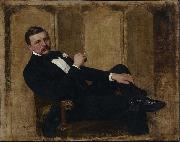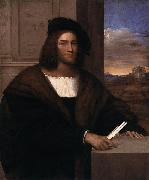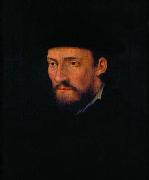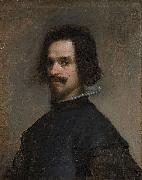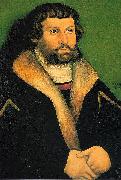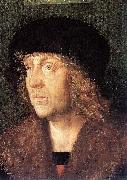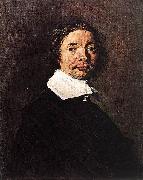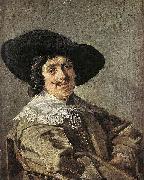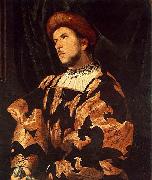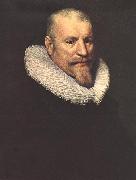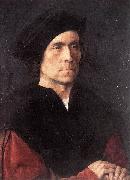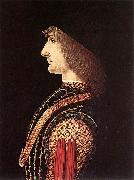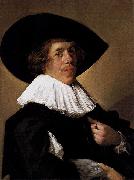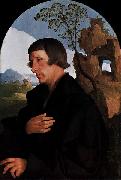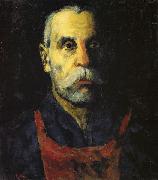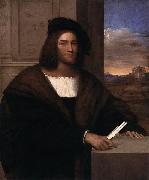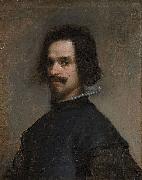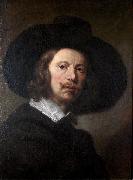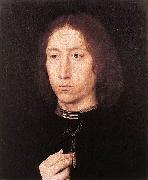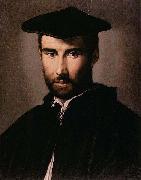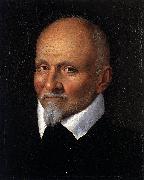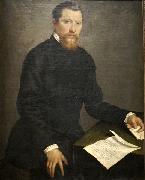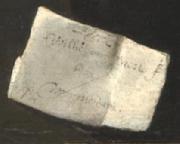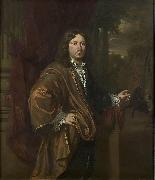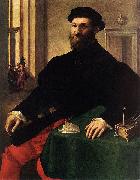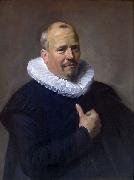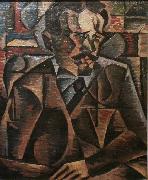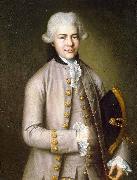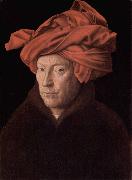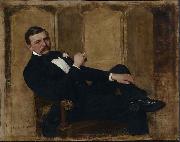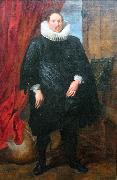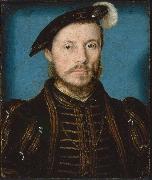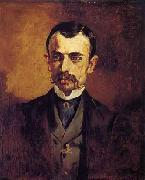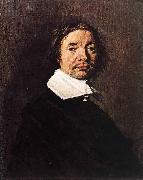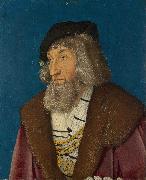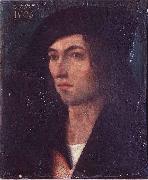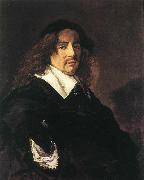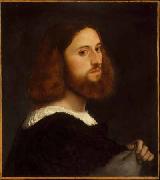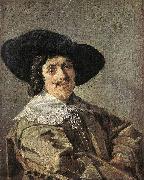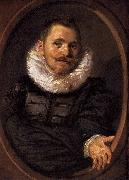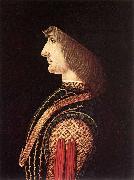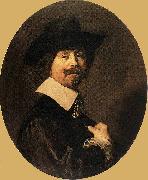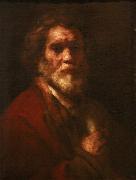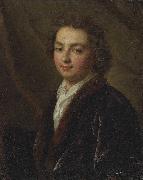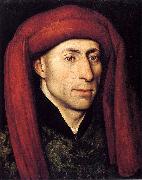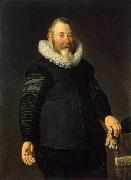Le Pétrole en gros ne Peignant pas de Minimum
Dieric Bouts
Le portrait d-un Homme
Portrait of a Man
ID de tableau:: 202
1462 La Galerie Nationale, London
Please Select Standard Painting Size
high quality:16x20 (40x51cm)
= $65
high quality:20x24 (51x61cm)
= $85
high quality:24x36 (61x91cm)
= $129
high quality:30x40 (76x102cm)
= $139
high quality:36x48 (91x122cm)
= $209
high quality:48x72 (122x182cm)
= $389
museum quality:16x20
(40x51cm) = $69
museum quality:20x24
(51x61cm) = $89
museum quality:24x36
(61x91cm) = $139
museum quality:30x40
(76x102cm) = $149
museum quality:36x48
(91x122cm) = $219
museum quality:48x72(122x182cm)=$399
DOU, Gerrit
le Portrait d-un Homme
Portrait of a Man
ID de tableau:: 19000
1642-46 Pétrole sur lambrise les Fonds d-Art d-Aurore
Please Select Standard Painting Size
high quality:16x20 (40x51cm)
= $65
high quality:20x24 (51x61cm)
= $85
high quality:24x36 (61x91cm)
= $129
high quality:30x40 (76x102cm)
= $139
high quality:36x48 (91x122cm)
= $209
high quality:48x72 (122x182cm)
= $389
museum quality:16x20
(40x51cm) = $69
museum quality:20x24
(51x61cm) = $89
museum quality:24x36
(61x91cm) = $139
museum quality:30x40
(76x102cm) = $149
museum quality:36x48
(91x122cm) = $219
museum quality:48x72(122x182cm)=$399
un Pétrole sur lambrise Galleria degli Uffizi, Florence.
Please Select Standard Painting Size
high quality:16x20 (40x51cm)
= $65
high quality:20x24 (51x61cm)
= $85
high quality:24x36 (61x91cm)
= $129
high quality:30x40 (76x102cm)
= $139
high quality:36x48 (91x122cm)
= $209
high quality:48x72 (122x182cm)
= $389
museum quality:16x20
(40x51cm) = $69
museum quality:20x24
(51x61cm) = $89
museum quality:24x36
(61x91cm) = $139
museum quality:30x40
(76x102cm) = $149
museum quality:36x48
(91x122cm) = $219
museum quality:48x72(122x182cm)=$399
Albrecht Durer
le Portrait d~un Homme
Portrait of a Man
ID de tableau:: 28090
mk61 1524 Huilent sur le canevas 50x36cm
Please Select Standard Painting Size
high quality:16x20 (40x51cm)
= $65
high quality:20x24 (51x61cm)
= $85
high quality:24x36 (61x91cm)
= $129
high quality:30x40 (76x102cm)
= $139
high quality:36x48 (91x122cm)
= $209
high quality:48x72 (122x182cm)
= $389
museum quality:16x20
(40x51cm) = $69
museum quality:20x24
(51x61cm) = $89
museum quality:24x36
(61x91cm) = $139
museum quality:30x40
(76x102cm) = $149
museum quality:36x48
(91x122cm) = $219
museum quality:48x72(122x182cm)=$399
Titian
le Portrait d~un Homme
Portrait of a Man
ID de tableau:: 28886
mk65 Pétrole sur le canevas 31 7/8x23 5/8in
Please Select Standard Painting Size
high quality:16x20 (40x51cm)
= $65
high quality:20x24 (51x61cm)
= $85
high quality:24x36 (61x91cm)
= $129
high quality:30x40 (76x102cm)
= $139
high quality:36x48 (91x122cm)
= $209
high quality:48x72 (122x182cm)
= $389
museum quality:16x20
(40x51cm) = $69
museum quality:20x24
(51x61cm) = $89
museum quality:24x36
(61x91cm) = $139
museum quality:30x40
(76x102cm) = $149
museum quality:36x48
(91x122cm) = $219
museum quality:48x72(122x182cm)=$399
mk65 Pétrole sur le panneau 25 5/8x19 11/16in Uffizi, la Galerie
Please Select Standard Painting Size
high quality:16x20 (40x51cm)
= $65
high quality:20x24 (51x61cm)
= $85
high quality:24x36 (61x91cm)
= $129
high quality:30x40 (76x102cm)
= $139
high quality:36x48 (91x122cm)
= $209
high quality:48x72 (122x182cm)
= $389
museum quality:16x20
(40x51cm) = $69
museum quality:20x24
(51x61cm) = $89
museum quality:24x36
(61x91cm) = $139
museum quality:30x40
(76x102cm) = $149
museum quality:36x48
(91x122cm) = $219
museum quality:48x72(122x182cm)=$399
Palma Vecchio
lePortrait d~un Homme
Portrait of a Man
ID de tableau:: 29287
mk65 Pétrole sur le canevas 37x28
Please Select Standard Painting Size
high quality:16x20 (40x51cm)
= $65
high quality:20x24 (51x61cm)
= $85
high quality:24x36 (61x91cm)
= $129
high quality:30x40 (76x102cm)
= $139
high quality:36x48 (91x122cm)
= $209
high quality:48x72 (122x182cm)
= $389
museum quality:16x20
(40x51cm) = $69
museum quality:20x24
(51x61cm) = $89
museum quality:24x36
(61x91cm) = $139
museum quality:30x40
(76x102cm) = $149
museum quality:36x48
(91x122cm) = $219
museum quality:48x72(122x182cm)=$399
mk65 Pétrole sur lambrise 34x31
Please Select Standard Painting Size
high quality:16x20 (40x51cm)
= $65
high quality:20x24 (51x61cm)
= $85
high quality:24x36 (61x91cm)
= $129
high quality:30x40 (76x102cm)
= $139
high quality:36x48 (91x122cm)
= $209
high quality:48x72 (122x182cm)
= $389
museum quality:16x20
(40x51cm) = $69
museum quality:20x24
(51x61cm) = $89
museum quality:24x36
(61x91cm) = $139
museum quality:30x40
(76x102cm) = $149
museum quality:36x48
(91x122cm) = $219
museum quality:48x72(122x182cm)=$399
mk65 Pétrole sur le canevas 23x19 1/2
Please Select Standard Painting Size
high quality:16x20 (40x51cm)
= $65
high quality:20x24 (51x61cm)
= $85
high quality:24x36 (61x91cm)
= $129
high quality:30x40 (76x102cm)
= $139
high quality:36x48 (91x122cm)
= $209
high quality:48x72 (122x182cm)
= $389
museum quality:16x20
(40x51cm) = $69
museum quality:20x24
(51x61cm) = $89
museum quality:24x36
(61x91cm) = $139
museum quality:30x40
(76x102cm) = $149
museum quality:36x48
(91x122cm) = $219
museum quality:48x72(122x182cm)=$399
mk65 Pétrole sur le canevas 25x20
Please Select Standard Painting Size
high quality:16x20 (40x51cm)
= $65
high quality:20x24 (51x61cm)
= $85
high quality:24x36 (61x91cm)
= $129
high quality:30x40 (76x102cm)
= $139
high quality:36x48 (91x122cm)
= $209
high quality:48x72 (122x182cm)
= $389
museum quality:16x20
(40x51cm) = $69
museum quality:20x24
(51x61cm) = $89
museum quality:24x36
(61x91cm) = $139
museum quality:30x40
(76x102cm) = $149
museum quality:36x48
(91x122cm) = $219
museum quality:48x72(122x182cm)=$399
Frans Hals
le Portrait d~unHomme
Portrait of a Man
ID de tableau:: 29328
33x26 de canevas d~o de Pétrole de mk65
Please Select Standard Painting Size
high quality:16x20 (40x51cm)
= $65
high quality:20x24 (51x61cm)
= $85
high quality:24x36 (61x91cm)
= $129
high quality:30x40 (76x102cm)
= $139
high quality:36x48 (91x122cm)
= $209
high quality:48x72 (122x182cm)
= $389
museum quality:16x20
(40x51cm) = $69
museum quality:20x24
(51x61cm) = $89
museum quality:24x36
(61x91cm) = $139
museum quality:30x40
(76x102cm) = $149
museum quality:36x48
(91x122cm) = $219
museum quality:48x72(122x182cm)=$399
1650 Pétrole sur le canevas, 91 x 72 cm
Please Select Standard Painting Size
high quality:16x20 (40x51cm)
= $65
high quality:20x24 (51x61cm)
= $85
high quality:24x36 (61x91cm)
= $129
high quality:30x40 (76x102cm)
= $139
high quality:36x48 (91x122cm)
= $209
high quality:48x72 (122x182cm)
= $389
museum quality:16x20
(40x51cm) = $69
museum quality:20x24
(51x61cm) = $89
museum quality:24x36
(61x91cm) = $139
museum quality:30x40
(76x102cm) = $149
museum quality:36x48
(91x122cm) = $219
museum quality:48x72(122x182cm)=$399
Huiler sur le canevas, 105 x 65 cm
Please Select Standard Painting Size
high quality:16x20 (40x51cm)
= $65
high quality:20x24 (51x61cm)
= $85
high quality:24x36 (61x91cm)
= $129
high quality:30x40 (76x102cm)
= $139
high quality:36x48 (91x122cm)
= $209
high quality:48x72 (122x182cm)
= $389
museum quality:16x20
(40x51cm) = $69
museum quality:20x24
(51x61cm) = $89
museum quality:24x36
(61x91cm) = $139
museum quality:30x40
(76x102cm) = $149
museum quality:36x48
(91x122cm) = $219
museum quality:48x72(122x182cm)=$399
HALS, Frans
le Portrait d~unhomme
Portrait of a man
ID de tableau:: 29621
1660-66 Pétrole sur le canevas, 85.8 x 66.9 cm
Please Select Standard Painting Size
high quality:16x20 (40x51cm)
= $65
high quality:20x24 (51x61cm)
= $85
high quality:24x36 (61x91cm)
= $129
high quality:30x40 (76x102cm)
= $139
high quality:36x48 (91x122cm)
= $209
high quality:48x72 (122x182cm)
= $389
museum quality:16x20
(40x51cm) = $69
museum quality:20x24
(51x61cm) = $89
museum quality:24x36
(61x91cm) = $139
museum quality:30x40
(76x102cm) = $149
museum quality:36x48
(91x122cm) = $219
museum quality:48x72(122x182cm)=$399
mk67 Pétrole sur le panneau 123/16x10 1/4in Uffizi, la Galerie
Please Select Standard Painting Size
high quality:16x20 (40x51cm)
= $65
high quality:20x24 (51x61cm)
= $85
high quality:24x36 (61x91cm)
= $129
high quality:30x40 (76x102cm)
= $139
high quality:36x48 (91x122cm)
= $209
high quality:48x72 (122x182cm)
= $389
museum quality:16x20
(40x51cm) = $69
museum quality:20x24
(51x61cm) = $89
museum quality:24x36
(61x91cm) = $139
museum quality:30x40
(76x102cm) = $149
museum quality:36x48
(91x122cm) = $219
museum quality:48x72(122x182cm)=$399
PARMIGIANINO
lePortrait d~un Homme
Portrait of a Man
ID de tableau:: 29882
mk67 Pétrole sur le panneau 34 5/8x23 15/26in Uffizi, la Galerie
Please Select Standard Painting Size
high quality:16x20 (40x51cm)
= $65
high quality:20x24 (51x61cm)
= $85
high quality:24x36 (61x91cm)
= $129
high quality:30x40 (76x102cm)
= $139
high quality:36x48 (91x122cm)
= $209
high quality:48x72 (122x182cm)
= $389
museum quality:16x20
(40x51cm) = $69
museum quality:20x24
(51x61cm) = $89
museum quality:24x36
(61x91cm) = $139
museum quality:30x40
(76x102cm) = $149
museum quality:36x48
(91x122cm) = $219
museum quality:48x72(122x182cm)=$399
Joos van cleve
le Portraitd~un Homme
Portrait of a Man
ID de tableau:: 29917
mk67 PETROLE sur le panneau 22 7/16x16 9/16in Uffizi, la Galerie
Please Select Standard Painting Size
high quality:16x20 (40x51cm)
= $65
high quality:20x24 (51x61cm)
= $85
high quality:24x36 (61x91cm)
= $129
high quality:30x40 (76x102cm)
= $139
high quality:36x48 (91x122cm)
= $209
high quality:48x72 (122x182cm)
= $389
museum quality:16x20
(40x51cm) = $69
museum quality:20x24
(51x61cm) = $89
museum quality:24x36
(61x91cm) = $139
museum quality:30x40
(76x102cm) = $149
museum quality:36x48
(91x122cm) = $219
museum quality:48x72(122x182cm)=$399
mk67 Pétrole sur le panneau 14 9/16x10 5/8in Uffizi, la Galerie
Please Select Standard Painting Size
high quality:16x20 (40x51cm)
= $65
high quality:20x24 (51x61cm)
= $85
high quality:24x36 (61x91cm)
= $129
high quality:30x40 (76x102cm)
= $139
high quality:36x48 (91x122cm)
= $209
high quality:48x72 (122x182cm)
= $389
museum quality:16x20
(40x51cm) = $69
museum quality:20x24
(51x61cm) = $89
museum quality:24x36
(61x91cm) = $139
museum quality:30x40
(76x102cm) = $149
museum quality:36x48
(91x122cm) = $219
museum quality:48x72(122x182cm)=$399
BURGKMAIR, Hans
le Portrait d~un Homme
Portrait of a Man
ID de tableau:: 29930
mk67 Parchemin par-dessus le panneau 10 11/16X8 7/8in Uffizi, la Galerie
Please Select Standard Painting Size
high quality:16x20 (40x51cm)
= $65
high quality:20x24 (51x61cm)
= $85
high quality:24x36 (61x91cm)
= $129
high quality:30x40 (76x102cm)
= $139
high quality:36x48 (91x122cm)
= $209
high quality:48x72 (122x182cm)
= $389
museum quality:16x20
(40x51cm) = $69
museum quality:20x24
(51x61cm) = $89
museum quality:24x36
(61x91cm) = $139
museum quality:30x40
(76x102cm) = $149
museum quality:36x48
(91x122cm) = $219
museum quality:48x72(122x182cm)=$399
c. 1475 Détrempe sur le bois, 31.8 x 26.7 cm Musée Métropolitain d~Art, New York
Please Select Standard Painting Size
high quality:16x20 (40x51cm)
= $65
high quality:20x24 (51x61cm)
= $85
high quality:24x36 (61x91cm)
= $129
high quality:30x40 (76x102cm)
= $139
high quality:36x48 (91x122cm)
= $209
high quality:48x72 (122x182cm)
= $389
museum quality:16x20
(40x51cm) = $69
museum quality:20x24
(51x61cm) = $89
museum quality:24x36
(61x91cm) = $139
museum quality:30x40
(76x102cm) = $149
museum quality:36x48
(91x122cm) = $219
museum quality:48x72(122x182cm)=$399
nn07 c. 1475 36x25cm
Please Select Standard Painting Size
high quality:16x20 (40x51cm)
= $65
high quality:20x24 (51x61cm)
= $85
high quality:24x36 (61x91cm)
= $129
high quality:30x40 (76x102cm)
= $139
high quality:36x48 (91x122cm)
= $209
high quality:48x72 (122x182cm)
= $389
museum quality:16x20
(40x51cm) = $69
museum quality:20x24
(51x61cm) = $89
museum quality:24x36
(61x91cm) = $139
museum quality:30x40
(76x102cm) = $149
museum quality:36x48
(91x122cm) = $219
museum quality:48x72(122x182cm)=$399
Hans Memling
le Portrait d~un homme
Portrait of a man
ID de tableau:: 31735
mk76 A Peint le c. 1470 Pétrole sur le panneau 13 1/8x9 1/8in
Please Select Standard Painting Size
high quality:16x20 (40x51cm)
= $65
high quality:20x24 (51x61cm)
= $85
high quality:24x36 (61x91cm)
= $129
high quality:30x40 (76x102cm)
= $139
high quality:36x48 (91x122cm)
= $209
high quality:48x72 (122x182cm)
= $389
museum quality:16x20
(40x51cm) = $69
museum quality:20x24
(51x61cm) = $89
museum quality:24x36
(61x91cm) = $139
museum quality:30x40
(76x102cm) = $149
museum quality:36x48
(91x122cm) = $219
museum quality:48x72(122x182cm)=$399
HALS, Frans
le Portrait d~un homme
Portrait of a man
ID de tableau:: 31759
mk76 A Peint le c. 1660 Pétrole sur le canevas 44 1/2x32 1/4in
Please Select Standard Painting Size
high quality:16x20 (40x51cm)
= $65
high quality:20x24 (51x61cm)
= $85
high quality:24x36 (61x91cm)
= $129
high quality:30x40 (76x102cm)
= $139
high quality:36x48 (91x122cm)
= $209
high quality:48x72 (122x182cm)
= $389
museum quality:16x20
(40x51cm) = $69
museum quality:20x24
(51x61cm) = $89
museum quality:24x36
(61x91cm) = $139
museum quality:30x40
(76x102cm) = $149
museum quality:36x48
(91x122cm) = $219
museum quality:48x72(122x182cm)=$399
Frans Hals
le Portrait d~un Homme
Portrait of a Man
ID de tableau:: 34274
mk91 Pétrole sur le canevas 84.5x67
Please Select Standard Painting Size
high quality:16x20 (40x51cm)
= $65
high quality:20x24 (51x61cm)
= $85
high quality:24x36 (61x91cm)
= $129
high quality:30x40 (76x102cm)
= $139
high quality:36x48 (91x122cm)
= $209
high quality:48x72 (122x182cm)
= $389
museum quality:16x20
(40x51cm) = $69
museum quality:20x24
(51x61cm) = $89
museum quality:24x36
(61x91cm) = $139
museum quality:30x40
(76x102cm) = $149
museum quality:36x48
(91x122cm) = $219
museum quality:48x72(122x182cm)=$399
Fernand Khnopff
le Portrait d~un Homme
Portrait of a Man
ID de tableau:: 34961
mk98 c. 1885Pétrole sur lambrise 25x185
Please Select Standard Painting Size
high quality:16x20 (40x51cm)
= $65
high quality:20x24 (51x61cm)
= $85
high quality:24x36 (61x91cm)
= $129
high quality:30x40 (76x102cm)
= $139
high quality:36x48 (91x122cm)
= $209
high quality:48x72 (122x182cm)
= $389
museum quality:16x20
(40x51cm) = $69
museum quality:20x24
(51x61cm) = $89
museum quality:24x36
(61x91cm) = $139
museum quality:30x40
(76x102cm) = $149
museum quality:36x48
(91x122cm) = $219
museum quality:48x72(122x182cm)=$399
Frank Duveneck
le Portrait d~un Homme
Portrait of a Man
ID de tableau:: 39082
mk140 environ 1876 Pétrole sur le canevas 75.5x60.7cm
Please Select Standard Painting Size
high quality:16x20 (40x51cm)
= $65
high quality:20x24 (51x61cm)
= $85
high quality:24x36 (61x91cm)
= $129
high quality:30x40 (76x102cm)
= $139
high quality:36x48 (91x122cm)
= $209
high quality:48x72 (122x182cm)
= $389
museum quality:16x20
(40x51cm) = $69
museum quality:20x24
(51x61cm) = $89
museum quality:24x36
(61x91cm) = $139
museum quality:30x40
(76x102cm) = $149
museum quality:36x48
(91x122cm) = $219
museum quality:48x72(122x182cm)=$399
Frans Hals
le Portrait d~un homme
Portrait of a man
ID de tableau:: 39688
mk150 c.1654/ 5 le Canevas 108x79.5cm
Please Select Standard Painting Size
high quality:16x20 (40x51cm)
= $65
high quality:20x24 (51x61cm)
= $85
high quality:24x36 (61x91cm)
= $129
high quality:30x40 (76x102cm)
= $139
high quality:36x48 (91x122cm)
= $209
high quality:48x72 (122x182cm)
= $389
museum quality:16x20
(40x51cm) = $69
museum quality:20x24
(51x61cm) = $89
museum quality:24x36
(61x91cm) = $139
museum quality:30x40
(76x102cm) = $149
museum quality:36x48
(91x122cm) = $219
museum quality:48x72(122x182cm)=$399
mk156 1475 Huilent sur le panneau 36x30cm
Please Select Standard Painting Size
high quality:16x20 (40x51cm)
= $65
high quality:20x24 (51x61cm)
= $85
high quality:24x36 (61x91cm)
= $129
high quality:30x40 (76x102cm)
= $139
high quality:36x48 (91x122cm)
= $209
high quality:48x72 (122x182cm)
= $389
museum quality:16x20
(40x51cm) = $69
museum quality:20x24
(51x61cm) = $89
museum quality:24x36
(61x91cm) = $139
museum quality:30x40
(76x102cm) = $149
museum quality:36x48
(91x122cm) = $219
museum quality:48x72(122x182cm)=$399
Francis Hayman
le Portrait d~un Homme
Portrait of a Man
ID de tableau:: 40927
mk158 c. 1747
Please Select Standard Painting Size
high quality:16x20 (40x51cm)
= $65
high quality:20x24 (51x61cm)
= $85
high quality:24x36 (61x91cm)
= $129
high quality:30x40 (76x102cm)
= $139
high quality:36x48 (91x122cm)
= $209
high quality:48x72 (122x182cm)
= $389
museum quality:16x20
(40x51cm) = $69
museum quality:20x24
(51x61cm) = $89
museum quality:24x36
(61x91cm) = $139
museum quality:30x40
(76x102cm) = $149
museum quality:36x48
(91x122cm) = $219
museum quality:48x72(122x182cm)=$399
mk159 1512 Huilent sur le canevas 117x85CM
Please Select Standard Painting Size
high quality:16x20 (40x51cm)
= $65
high quality:20x24 (51x61cm)
= $85
high quality:24x36 (61x91cm)
= $129
high quality:30x40 (76x102cm)
= $139
high quality:36x48 (91x122cm)
= $209
high quality:48x72 (122x182cm)
= $389
museum quality:16x20
(40x51cm) = $69
museum quality:20x24
(51x61cm) = $89
museum quality:24x36
(61x91cm) = $139
museum quality:30x40
(76x102cm) = $149
museum quality:36x48
(91x122cm) = $219
museum quality:48x72(122x182cm)=$399
Salvator Rosa
le Portrait d~un homme
Portrait of a man
ID de tableau:: 41014
mk159 1640 Huilent sur le canevas78x64.5cm
Please Select Standard Painting Size
high quality:16x20 (40x51cm)
= $65
high quality:20x24 (51x61cm)
= $85
high quality:24x36 (61x91cm)
= $129
high quality:30x40 (76x102cm)
= $139
high quality:36x48 (91x122cm)
= $209
high quality:48x72 (122x182cm)
= $389
museum quality:16x20
(40x51cm) = $69
museum quality:20x24
(51x61cm) = $89
museum quality:24x36
(61x91cm) = $139
museum quality:30x40
(76x102cm) = $149
museum quality:36x48
(91x122cm) = $219
museum quality:48x72(122x182cm)=$399
mk161 Détrempe et huile sur le bois 12x10
Please Select Standard Painting Size
high quality:16x20 (40x51cm)
= $65
high quality:20x24 (51x61cm)
= $85
high quality:24x36 (61x91cm)
= $129
high quality:30x40 (76x102cm)
= $139
high quality:36x48 (91x122cm)
= $209
high quality:48x72 (122x182cm)
= $389
museum quality:16x20
(40x51cm) = $69
museum quality:20x24
(51x61cm) = $89
museum quality:24x36
(61x91cm) = $139
museum quality:30x40
(76x102cm) = $149
museum quality:36x48
(91x122cm) = $219
museum quality:48x72(122x182cm)=$399
Albrecht Durer
le Portrait d~un homme
Portrait of a man
ID de tableau:: 42300
mk168 Pétrole sur le chêne 50x36cm
Please Select Standard Painting Size
high quality:16x20 (40x51cm)
= $65
high quality:20x24 (51x61cm)
= $85
high quality:24x36 (61x91cm)
= $129
high quality:30x40 (76x102cm)
= $139
high quality:36x48 (91x122cm)
= $209
high quality:48x72 (122x182cm)
= $389
museum quality:16x20
(40x51cm) = $69
museum quality:20x24
(51x61cm) = $89
museum quality:24x36
(61x91cm) = $139
museum quality:30x40
(76x102cm) = $149
museum quality:36x48
(91x122cm) = $219
museum quality:48x72(122x182cm)=$399
Albrecht Durer
lePortrait d~un Homme
Portrait of a Man
ID de tableau:: 42405
mk168 50x32cm Pétrole sur le chêne
Please Select Standard Painting Size
high quality:16x20 (40x51cm)
= $65
high quality:20x24 (51x61cm)
= $85
high quality:24x36 (61x91cm)
= $129
high quality:30x40 (76x102cm)
= $139
high quality:36x48 (91x122cm)
= $209
high quality:48x72 (122x182cm)
= $389
museum quality:16x20
(40x51cm) = $69
museum quality:20x24
(51x61cm) = $89
museum quality:24x36
(61x91cm) = $139
museum quality:30x40
(76x102cm) = $149
museum quality:36x48
(91x122cm) = $219
museum quality:48x72(122x182cm)=$399
mk170
circa 1430
Oil and egg tempera on oak
40.7x28.1cm
Please Select Standard Painting Size
high quality:16x20 (40x51cm)
= $65
high quality:20x24 (51x61cm)
= $85
high quality:24x36 (61x91cm)
= $129
high quality:30x40 (76x102cm)
= $139
high quality:36x48 (91x122cm)
= $209
high quality:48x72 (122x182cm)
= $389
museum quality:16x20
(40x51cm) = $69
museum quality:20x24
(51x61cm) = $89
museum quality:24x36
(61x91cm) = $139
museum quality:30x40
(76x102cm) = $149
museum quality:36x48
(91x122cm) = $219
museum quality:48x72(122x182cm)=$399
mk170
dated 1462
Oil on oak
31.6x20.5cm
Please Select Standard Painting Size
high quality:16x20 (40x51cm)
= $65
high quality:20x24 (51x61cm)
= $85
high quality:24x36 (61x91cm)
= $129
high quality:30x40 (76x102cm)
= $139
high quality:36x48 (91x122cm)
= $209
high quality:48x72 (122x182cm)
= $389
museum quality:16x20
(40x51cm) = $69
museum quality:20x24
(51x61cm) = $89
museum quality:24x36
(61x91cm) = $139
museum quality:30x40
(76x102cm) = $149
museum quality:36x48
(91x122cm) = $219
museum quality:48x72(122x182cm)=$399
mk170
Oil on wood
62.2x47cm
Please Select Standard Painting Size
high quality:16x20 (40x51cm)
= $65
high quality:20x24 (51x61cm)
= $85
high quality:24x36 (61x91cm)
= $129
high quality:30x40 (76x102cm)
= $139
high quality:36x48 (91x122cm)
= $209
high quality:48x72 (122x182cm)
= $389
museum quality:16x20
(40x51cm) = $69
museum quality:20x24
(51x61cm) = $89
museum quality:24x36
(61x91cm) = $139
museum quality:30x40
(76x102cm) = $149
museum quality:36x48
(91x122cm) = $219
museum quality:48x72(122x182cm)=$399
mk170
circa 1523
Oil on wood
89.5x63.8cm
Please Select Standard Painting Size
high quality:16x20 (40x51cm)
= $65
high quality:20x24 (51x61cm)
= $85
high quality:24x36 (61x91cm)
= $129
high quality:30x40 (76x102cm)
= $139
high quality:36x48 (91x122cm)
= $209
high quality:48x72 (122x182cm)
= $389
museum quality:16x20
(40x51cm) = $69
museum quality:20x24
(51x61cm) = $89
museum quality:24x36
(61x91cm) = $139
museum quality:30x40
(76x102cm) = $149
museum quality:36x48
(91x122cm) = $219
museum quality:48x72(122x182cm)=$399
mk170
dated 1526
Oil on canvas
201x92.2cm
Please Select Standard Painting Size
high quality:16x20 (40x51cm)
= $65
high quality:20x24 (51x61cm)
= $85
high quality:24x36 (61x91cm)
= $129
high quality:30x40 (76x102cm)
= $139
high quality:36x48 (91x122cm)
= $209
high quality:48x72 (122x182cm)
= $389
museum quality:16x20
(40x51cm) = $69
museum quality:20x24
(51x61cm) = $89
museum quality:24x36
(61x91cm) = $139
museum quality:30x40
(76x102cm) = $149
museum quality:36x48
(91x122cm) = $219
museum quality:48x72(122x182cm)=$399
mk170
1565-1570
Oil on canvas
97.8x74.9cm
Please Select Standard Painting Size
high quality:16x20 (40x51cm)
= $65
high quality:20x24 (51x61cm)
= $85
high quality:24x36 (61x91cm)
= $129
high quality:30x40 (76x102cm)
= $139
high quality:36x48 (91x122cm)
= $209
high quality:48x72 (122x182cm)
= $389
museum quality:16x20
(40x51cm) = $69
museum quality:20x24
(51x61cm) = $89
museum quality:24x36
(61x91cm) = $139
museum quality:30x40
(76x102cm) = $149
museum quality:36x48
(91x122cm) = $219
museum quality:48x72(122x182cm)=$399
Frans Hals
Portrait of a Man
ID de tableau:: 43152
mk170
1633
Oil on canvas
64.8x50.2cm
Please Select Standard Painting Size
high quality:16x20 (40x51cm)
= $65
high quality:20x24 (51x61cm)
= $85
high quality:24x36 (61x91cm)
= $129
high quality:30x40 (76x102cm)
= $139
high quality:36x48 (91x122cm)
= $209
high quality:48x72 (122x182cm)
= $389
museum quality:16x20
(40x51cm) = $69
museum quality:20x24
(51x61cm) = $89
museum quality:24x36
(61x91cm) = $139
museum quality:30x40
(76x102cm) = $149
museum quality:36x48
(91x122cm) = $219
museum quality:48x72(122x182cm)=$399
mk170
1747
Oil on canvas
100.3x80cm
Please Select Standard Painting Size
high quality:16x20 (40x51cm)
= $65
high quality:20x24 (51x61cm)
= $85
high quality:24x36 (61x91cm)
= $129
high quality:30x40 (76x102cm)
= $139
high quality:36x48 (91x122cm)
= $209
high quality:48x72 (122x182cm)
= $389
museum quality:16x20
(40x51cm) = $69
museum quality:20x24
(51x61cm) = $89
museum quality:24x36
(61x91cm) = $139
museum quality:30x40
(76x102cm) = $149
museum quality:36x48
(91x122cm) = $219
museum quality:48x72(122x182cm)=$399
mk210
1663
Canvas
124x100cm
Please Select Standard Painting Size
high quality:16x20 (40x51cm)
= $65
high quality:20x24 (51x61cm)
= $85
high quality:24x36 (61x91cm)
= $129
high quality:30x40 (76x102cm)
= $139
high quality:36x48 (91x122cm)
= $209
high quality:48x72 (122x182cm)
= $389
museum quality:16x20
(40x51cm) = $69
museum quality:20x24
(51x61cm) = $89
museum quality:24x36
(61x91cm) = $139
museum quality:30x40
(76x102cm) = $149
museum quality:36x48
(91x122cm) = $219
museum quality:48x72(122x182cm)=$399
mk211
1906
Oil on canvas
103.3x103.3cm
Please Select Standard Painting Size
high quality:16x20 (40x51cm)
= $65
high quality:20x24 (51x61cm)
= $85
high quality:24x36 (61x91cm)
= $129
high quality:30x40 (76x102cm)
= $139
high quality:36x48 (91x122cm)
= $209
high quality:48x72 (122x182cm)
= $389
museum quality:16x20
(40x51cm) = $69
museum quality:20x24
(51x61cm) = $89
museum quality:24x36
(61x91cm) = $139
museum quality:30x40
(76x102cm) = $149
museum quality:36x48
(91x122cm) = $219
museum quality:48x72(122x182cm)=$399
mk223
Oil on canvas
Please Select Standard Painting Size
high quality:16x20 (40x51cm)
= $65
high quality:20x24 (51x61cm)
= $85
high quality:24x36 (61x91cm)
= $129
high quality:30x40 (76x102cm)
= $139
high quality:36x48 (91x122cm)
= $209
high quality:48x72 (122x182cm)
= $389
museum quality:16x20
(40x51cm) = $69
museum quality:20x24
(51x61cm) = $89
museum quality:24x36
(61x91cm) = $139
museum quality:30x40
(76x102cm) = $149
museum quality:36x48
(91x122cm) = $219
museum quality:48x72(122x182cm)=$399
mk227
Oil on canvas
75.2x58.1cm
1810
Please Select Standard Painting Size
high quality:16x20 (40x51cm)
= $65
high quality:20x24 (51x61cm)
= $85
high quality:24x36 (61x91cm)
= $129
high quality:30x40 (76x102cm)
= $139
high quality:36x48 (91x122cm)
= $209
high quality:48x72 (122x182cm)
= $389
museum quality:16x20
(40x51cm) = $69
museum quality:20x24
(51x61cm) = $89
museum quality:24x36
(61x91cm) = $139
museum quality:30x40
(76x102cm) = $149
museum quality:36x48
(91x122cm) = $219
museum quality:48x72(122x182cm)=$399
Titian
portrait of a man
ID de tableau:: 56002
c.1512 ,oil on canvas,32x26.125 in,81.2x66.3 cm,national gallery,london,uk
Please Select Standard Painting Size
high quality:16x20 (40x51cm)
= $65
high quality:20x24 (51x61cm)
= $85
high quality:24x36 (61x91cm)
= $129
high quality:30x40 (76x102cm)
= $139
high quality:36x48 (91x122cm)
= $209
high quality:48x72 (122x182cm)
= $389
museum quality:16x20
(40x51cm) = $69
museum quality:20x24
(51x61cm) = $89
museum quality:24x36
(61x91cm) = $139
museum quality:30x40
(76x102cm) = $149
museum quality:36x48
(91x122cm) = $219
museum quality:48x72(122x182cm)=$399
El Greco
Portrait of a Man
ID de tableau:: 62291
1586-90 Oil on cardboard, 7,9 x 5,7 cm The Hispanic Society of America, New York Work by El Greco in small format, which includes miniatures, small-scale religious paintings and reduced versions of larger compositions, is well documented from the time of his residence in Italy onwards. Yet this interesting portrait miniature remains one of the few known in his oeuvre. It bears an original signature on the back
Please Select Standard Painting Size
high quality:16x20 (40x51cm)
= $65
high quality:20x24 (51x61cm)
= $85
high quality:24x36 (61x91cm)
= $129
high quality:30x40 (76x102cm)
= $139
high quality:36x48 (91x122cm)
= $209
high quality:48x72 (122x182cm)
= $389
museum quality:16x20
(40x51cm) = $69
museum quality:20x24
(51x61cm) = $89
museum quality:24x36
(61x91cm) = $139
museum quality:30x40
(76x102cm) = $149
museum quality:36x48
(91x122cm) = $219
museum quality:48x72(122x182cm)=$399
GRECO, El
Portrait of a Man
ID de tableau:: 62338
53 x 47 cm Metropolitan Museum of Art, New York This painting was identified for long time as a self-portrait and as such it became one of El Greco's most famous portraits. However, lacking certified portraits of the artist, the identification is only a plausible hypothesis based on the resemblance of the sitter to other figures in El Greco's paintings that have also been thought to record the artist's features. There are several assumed self-portraits of the artist included in his compositions from the early Healing of the Blind to the Burial of Count Orgaz, then to the Pentecost, Marriage of the Virgin and the Adoration of the Shepherds. Regardless of the identification of the sitter, this is a fine and particularly compelling portrait by the artist, with the features painted with great sensitivity. The canvas has been trimmed on all sides. The signature on the painting proved to be false and was removed in 1947. Author: GRECO, El Title: Portrait of a Man , 1551-1600 , Spanish Form: painting , portrait
Please Select Standard Painting Size
high quality:16x20 (40x51cm)
= $65
high quality:20x24 (51x61cm)
= $85
high quality:24x36 (61x91cm)
= $129
high quality:30x40 (76x102cm)
= $139
high quality:36x48 (91x122cm)
= $209
high quality:48x72 (122x182cm)
= $389
museum quality:16x20
(40x51cm) = $69
museum quality:20x24
(51x61cm) = $89
museum quality:24x36
(61x91cm) = $139
museum quality:30x40
(76x102cm) = $149
museum quality:36x48
(91x122cm) = $219
museum quality:48x72(122x182cm)=$399
1474 Oil on wood, 32 x 26 cm Staatliche Museen, Berlin The painting is one of the portraits which were famed for their realism. Due to his knowledge of Flemish pictures, the painter had made a decisive contribution to the spreading and perfection in Italy of what was at that time the new medium of oil painting, and normally depicted figures in three quarter life-size as statue-like half-length portraits in front of a barrier. As in this portrait, the face is particularly emphasized by the dark background and simple headgear, with the eyes directed straight at the observer.Artist:ANTONELLO da Messina Title: Portrait of a Man Painted in 1451-1500 , Italian - - painting : portrait
Please Select Standard Painting Size
high quality:16x20 (40x51cm)
= $65
high quality:20x24 (51x61cm)
= $85
high quality:24x36 (61x91cm)
= $129
high quality:30x40 (76x102cm)
= $139
high quality:36x48 (91x122cm)
= $209
high quality:48x72 (122x182cm)
= $389
museum quality:16x20
(40x51cm) = $69
museum quality:20x24
(51x61cm) = $89
museum quality:24x36
(61x91cm) = $139
museum quality:30x40
(76x102cm) = $149
museum quality:36x48
(91x122cm) = $219
museum quality:48x72(122x182cm)=$399
1504 Oil on panel, 43 x 29 cm Museum of Fine Arts, Budapest D?rer's paintings include altarpieces, religious pictures and some outstanding portraits. Although he began by working in the German late Gothic tradition, D?rer was to introduce the Renaissance to Germany with his pure compositions in which the sure touch of the draughtsman is always evident. With his workshop and followers he marked out the lines of development of the new style for later years. This small picture - a portrait of a youth, painted in brilliant, warm colours - is sometimes ascribed to D?rer's pupils (Hans S?ss von Kulmbach or Hans Baldung Grien). Some scholars believe to recognize in the sitter D?rer's brother Andreas; however the smooth features and simple attire hardly provide enough clues for identifying the sitter. However, a silverpoint drawing by D?rer in the Albertina Collection in Vienna shows the same model in a similar pose, clearly indicated in the inscription as Endres D?rer, the painter's younger brother
Please Select Standard Painting Size
high quality:16x20 (40x51cm)
= $65
high quality:20x24 (51x61cm)
= $85
high quality:24x36 (61x91cm)
= $129
high quality:30x40 (76x102cm)
= $139
high quality:36x48 (91x122cm)
= $209
high quality:48x72 (122x182cm)
= $389
museum quality:16x20
(40x51cm) = $69
museum quality:20x24
(51x61cm) = $89
museum quality:24x36
(61x91cm) = $139
museum quality:30x40
(76x102cm) = $149
museum quality:36x48
(91x122cm) = $219
museum quality:48x72(122x182cm)=$399
Frans Hals
Portrait of a Man
ID de tableau:: 63547
1634 Oil on canvas, 82,5 x 70 cm Museum of Fine Arts, Budapest The painting is dated at the bottom right part as "AETAT SVAE 28 / AN 1634
Please Select Standard Painting Size
high quality:16x20 (40x51cm)
= $65
high quality:20x24 (51x61cm)
= $85
high quality:24x36 (61x91cm)
= $129
high quality:30x40 (76x102cm)
= $139
high quality:36x48 (91x122cm)
= $209
high quality:48x72 (122x182cm)
= $389
museum quality:16x20
(40x51cm) = $69
museum quality:20x24
(51x61cm) = $89
museum quality:24x36
(61x91cm) = $139
museum quality:30x40
(76x102cm) = $149
museum quality:36x48
(91x122cm) = $219
museum quality:48x72(122x182cm)=$399
1455-60 Oil on oak panel, 32 x 22,8 cm Thyssen-Bornemisza Collection, Madrid The man, who is of middle age, has not been identified. The fashion in which his hair is cut corresponds roughly to the style worn by Francesco d'Este (Metropolitan Museum of Art, New York), which would suggest that the two pictures are close in date.Artist:WEYDEN, Rogier van der Title: Portrait of a Man Painted in 1401-1450 , Flemish - - painting : portrait
Please Select Standard Painting Size
high quality:16x20 (40x51cm)
= $65
high quality:20x24 (51x61cm)
= $85
high quality:24x36 (61x91cm)
= $129
high quality:30x40 (76x102cm)
= $139
high quality:36x48 (91x122cm)
= $209
high quality:48x72 (122x182cm)
= $389
museum quality:16x20
(40x51cm) = $69
museum quality:20x24
(51x61cm) = $89
museum quality:24x36
(61x91cm) = $139
museum quality:30x40
(76x102cm) = $149
museum quality:36x48
(91x122cm) = $219
museum quality:48x72(122x182cm)=$399
1450 Oil on panel, 75 x 50 cm Koninklijk Museum voor Schone Kunsten, Antwerp This portrait is probably a copy from c. 1500 of an original by Rogier van der Weyden which, judging by the fashion of the clothes, was executed around or shortly after the middle of the century. An unusual feature is the elegant low neck, which makes the face seem small. Possibly this, like the clock, and the inscriptions reminding the viewer of the transience of life, was a deviation from the original.Artist:WEYDEN, Rogier van der Title: Portrait of a Man Painted in 1401-1450 , Flemish - - painting : portrait
Please Select Standard Painting Size
high quality:16x20 (40x51cm)
= $65
high quality:20x24 (51x61cm)
= $85
high quality:24x36 (61x91cm)
= $129
high quality:30x40 (76x102cm)
= $139
high quality:36x48 (91x122cm)
= $209
high quality:48x72 (122x182cm)
= $389
museum quality:16x20
(40x51cm) = $69
museum quality:20x24
(51x61cm) = $89
museum quality:24x36
(61x91cm) = $139
museum quality:30x40
(76x102cm) = $149
museum quality:36x48
(91x122cm) = $219
museum quality:48x72(122x182cm)=$399
oil on canvas painting by Giovanni Battista Moroni, 1553, Honolulu Academy of Arts
Please Select Standard Painting Size
high quality:16x20 (40x51cm)
= $65
high quality:20x24 (51x61cm)
= $85
high quality:24x36 (61x91cm)
= $129
high quality:30x40 (76x102cm)
= $139
high quality:36x48 (91x122cm)
= $209
high quality:48x72 (122x182cm)
= $389
museum quality:16x20
(40x51cm) = $69
museum quality:20x24
(51x61cm) = $89
museum quality:24x36
(61x91cm) = $139
museum quality:30x40
(76x102cm) = $149
museum quality:36x48
(91x122cm) = $219
museum quality:48x72(122x182cm)=$399
ca. 1866(1866)
Oil on canvas
86.4 x 64.8 cm (34.02 x 25.51 in)
Please Select Standard Painting Size
high quality:16x20 (40x51cm)
= $65
high quality:20x24 (51x61cm)
= $85
high quality:24x36 (61x91cm)
= $129
high quality:30x40 (76x102cm)
= $139
high quality:36x48 (91x122cm)
= $209
high quality:48x72 (122x182cm)
= $389
museum quality:16x20
(40x51cm) = $69
museum quality:20x24
(51x61cm) = $89
museum quality:24x36
(61x91cm) = $139
museum quality:30x40
(76x102cm) = $149
museum quality:36x48
(91x122cm) = $219
museum quality:48x72(122x182cm)=$399
between 1400(1400) and 1499(1499)
tempera and Oil on poplar
47.9 x 33 cm (18.86 x 12.99 in)
Please Select Standard Painting Size
high quality:16x20 (40x51cm)
= $65
high quality:20x24 (51x61cm)
= $85
high quality:24x36 (61x91cm)
= $129
high quality:30x40 (76x102cm)
= $139
high quality:36x48 (91x122cm)
= $209
high quality:48x72 (122x182cm)
= $389
museum quality:16x20
(40x51cm) = $69
museum quality:20x24
(51x61cm) = $89
museum quality:24x36
(61x91cm) = $139
museum quality:30x40
(76x102cm) = $149
museum quality:36x48
(91x122cm) = $219
museum quality:48x72(122x182cm)=$399
Frans Hals
Portrait of a Man
ID de tableau:: 72204
between 1612(1612) and 1616(1616)
Oil on canvas
73.7 X 55.2 cm (29.02 X 21.73 in)
cjr
Please Select Standard Painting Size
high quality:16x20 (40x51cm)
= $65
high quality:20x24 (51x61cm)
= $85
high quality:24x36 (61x91cm)
= $129
high quality:30x40 (76x102cm)
= $139
high quality:36x48 (91x122cm)
= $209
high quality:48x72 (122x182cm)
= $389
museum quality:16x20
(40x51cm) = $69
museum quality:20x24
(51x61cm) = $89
museum quality:24x36
(61x91cm) = $139
museum quality:30x40
(76x102cm) = $149
museum quality:36x48
(91x122cm) = $219
museum quality:48x72(122x182cm)=$399
Date ca. 1876(1876)
Medium Oil on canvas
Dimensions 75.5 X 60.7 cm (29.72 X 23.9 in)
cyf
Please Select Standard Painting Size
high quality:16x20 (40x51cm)
= $65
high quality:20x24 (51x61cm)
= $85
high quality:24x36 (61x91cm)
= $129
high quality:30x40 (76x102cm)
= $139
high quality:36x48 (91x122cm)
= $209
high quality:48x72 (122x182cm)
= $389
museum quality:16x20
(40x51cm) = $69
museum quality:20x24
(51x61cm) = $89
museum quality:24x36
(61x91cm) = $139
museum quality:30x40
(76x102cm) = $149
museum quality:36x48
(91x122cm) = $219
museum quality:48x72(122x182cm)=$399
Date between 1400(1400) and 1499(1499)
Medium tempera and Oil on poplar
Dimensions 47.9 X 33 cm (18.86 X 12.99 in)
cyf
Please Select Standard Painting Size
high quality:16x20 (40x51cm)
= $65
high quality:20x24 (51x61cm)
= $85
high quality:24x36 (61x91cm)
= $129
high quality:30x40 (76x102cm)
= $139
high quality:36x48 (91x122cm)
= $209
high quality:48x72 (122x182cm)
= $389
museum quality:16x20
(40x51cm) = $69
museum quality:20x24
(51x61cm) = $89
museum quality:24x36
(61x91cm) = $139
museum quality:30x40
(76x102cm) = $149
museum quality:36x48
(91x122cm) = $219
museum quality:48x72(122x182cm)=$399
Frans Hals
Portrait of a Man
ID de tableau:: 73319
Date between 1612(1612) and 1616(1616)
Medium Oil on canvas
Dimensions 73.7 X 55.2 cm (29.02 X 21.73 in)
cyf
Please Select Standard Painting Size
high quality:16x20 (40x51cm)
= $65
high quality:20x24 (51x61cm)
= $85
high quality:24x36 (61x91cm)
= $129
high quality:30x40 (76x102cm)
= $139
high quality:36x48 (91x122cm)
= $209
high quality:48x72 (122x182cm)
= $389
museum quality:16x20
(40x51cm) = $69
museum quality:20x24
(51x61cm) = $89
museum quality:24x36
(61x91cm) = $139
museum quality:30x40
(76x102cm) = $149
museum quality:36x48
(91x122cm) = $219
museum quality:48x72(122x182cm)=$399
Oil painting reproduction of FrXdXric Bazille.
cjr
Please Select Standard Painting Size
high quality:16x20 (40x51cm)
= $65
high quality:20x24 (51x61cm)
= $85
high quality:24x36 (61x91cm)
= $129
high quality:30x40 (76x102cm)
= $139
high quality:36x48 (91x122cm)
= $209
high quality:48x72 (122x182cm)
= $389
museum quality:16x20
(40x51cm) = $69
museum quality:20x24
(51x61cm) = $89
museum quality:24x36
(61x91cm) = $139
museum quality:30x40
(76x102cm) = $149
museum quality:36x48
(91x122cm) = $219
museum quality:48x72(122x182cm)=$399
Date ca. 1859(1859)
Medium Oil on canvas
Dimensions 39.1 X 34 cm (15.39 X 13.39 in)
cyf
Please Select Standard Painting Size
high quality:16x20 (40x51cm)
= $65
high quality:20x24 (51x61cm)
= $85
high quality:24x36 (61x91cm)
= $129
high quality:30x40 (76x102cm)
= $139
high quality:36x48 (91x122cm)
= $209
high quality:48x72 (122x182cm)
= $389
museum quality:16x20
(40x51cm) = $69
museum quality:20x24
(51x61cm) = $89
museum quality:24x36
(61x91cm) = $139
museum quality:30x40
(76x102cm) = $149
museum quality:36x48
(91x122cm) = $219
museum quality:48x72(122x182cm)=$399
Date between 1635(1635) and 1639(1639)
Medium Oil on canvas
Dimensions 75.6 X 65.1 cm (29.76 X 25.63 in)
cyf
Please Select Standard Painting Size
high quality:16x20 (40x51cm)
= $65
high quality:20x24 (51x61cm)
= $85
high quality:24x36 (61x91cm)
= $129
high quality:30x40 (76x102cm)
= $139
high quality:36x48 (91x122cm)
= $209
high quality:48x72 (122x182cm)
= $389
museum quality:16x20
(40x51cm) = $69
museum quality:20x24
(51x61cm) = $89
museum quality:24x36
(61x91cm) = $139
museum quality:30x40
(76x102cm) = $149
museum quality:36x48
(91x122cm) = $219
museum quality:48x72(122x182cm)=$399
18th century
Oil on canvas
61 x 47 cm (24 x 18.5 in)
cjr
Please Select Standard Painting Size
high quality:16x20 (40x51cm)
= $65
high quality:20x24 (51x61cm)
= $85
high quality:24x36 (61x91cm)
= $129
high quality:30x40 (76x102cm)
= $139
high quality:36x48 (91x122cm)
= $209
high quality:48x72 (122x182cm)
= $389
museum quality:16x20
(40x51cm) = $69
museum quality:20x24
(51x61cm) = $89
museum quality:24x36
(61x91cm) = $139
museum quality:30x40
(76x102cm) = $149
museum quality:36x48
(91x122cm) = $219
museum quality:48x72(122x182cm)=$399
1540-1560
Oil on panel
cjr
Please Select Standard Painting Size
high quality:16x20 (40x51cm)
= $65
high quality:20x24 (51x61cm)
= $85
high quality:24x36 (61x91cm)
= $129
high quality:30x40 (76x102cm)
= $139
high quality:36x48 (91x122cm)
= $209
high quality:48x72 (122x182cm)
= $389
museum quality:16x20
(40x51cm) = $69
museum quality:20x24
(51x61cm) = $89
museum quality:24x36
(61x91cm) = $139
museum quality:30x40
(76x102cm) = $149
museum quality:36x48
(91x122cm) = $219
museum quality:48x72(122x182cm)=$399
Oil on canvas
Width: 1.07 m (1.2 yd). Height: 1.39 m (1.5 yd).
cjr
Please Select Standard Painting Size
high quality:16x20 (40x51cm)
= $65
high quality:20x24 (51x61cm)
= $85
high quality:24x36 (61x91cm)
= $129
high quality:30x40 (76x102cm)
= $139
high quality:36x48 (91x122cm)
= $209
high quality:48x72 (122x182cm)
= $389
museum quality:16x20
(40x51cm) = $69
museum quality:20x24
(51x61cm) = $89
museum quality:24x36
(61x91cm) = $139
museum quality:30x40
(76x102cm) = $149
museum quality:36x48
(91x122cm) = $219
museum quality:48x72(122x182cm)=$399
between 1506(1506) and 1510(1510)
Oil on wood
Height: 42.3 cm (16.7 in). Width: 35.8 cm (14.1 in).
cjr
Please Select Standard Painting Size
high quality:16x20 (40x51cm)
= $65
high quality:20x24 (51x61cm)
= $85
high quality:24x36 (61x91cm)
= $129
high quality:30x40 (76x102cm)
= $139
high quality:36x48 (91x122cm)
= $209
high quality:48x72 (122x182cm)
= $389
museum quality:16x20
(40x51cm) = $69
museum quality:20x24
(51x61cm) = $89
museum quality:24x36
(61x91cm) = $139
museum quality:30x40
(76x102cm) = $149
museum quality:36x48
(91x122cm) = $219
museum quality:48x72(122x182cm)=$399
1473(1473)
Medium Oil on panel
cyf
Please Select Standard Painting Size
high quality:16x20 (40x51cm)
= $65
high quality:20x24 (51x61cm)
= $85
high quality:24x36 (61x91cm)
= $129
high quality:30x40 (76x102cm)
= $139
high quality:36x48 (91x122cm)
= $209
high quality:48x72 (122x182cm)
= $389
museum quality:16x20
(40x51cm) = $69
museum quality:20x24
(51x61cm) = $89
museum quality:24x36
(61x91cm) = $139
museum quality:30x40
(76x102cm) = $149
museum quality:36x48
(91x122cm) = $219
museum quality:48x72(122x182cm)=$399
c.1465-70
Oil on panel
cjr
Please Select Standard Painting Size
high quality:16x20 (40x51cm)
= $65
high quality:20x24 (51x61cm)
= $85
high quality:24x36 (61x91cm)
= $129
high quality:30x40 (76x102cm)
= $139
high quality:36x48 (91x122cm)
= $209
high quality:48x72 (122x182cm)
= $389
museum quality:16x20
(40x51cm) = $69
museum quality:20x24
(51x61cm) = $89
museum quality:24x36
(61x91cm) = $139
museum quality:30x40
(76x102cm) = $149
museum quality:36x48
(91x122cm) = $219
museum quality:48x72(122x182cm)=$399
18th century
Medium Oil on canvas
Dimensions 61 x 47 cm (24 x 18.5 in)
cyf
Please Select Standard Painting Size
high quality:16x20 (40x51cm)
= $65
high quality:20x24 (51x61cm)
= $85
high quality:24x36 (61x91cm)
= $129
high quality:30x40 (76x102cm)
= $139
high quality:36x48 (91x122cm)
= $209
high quality:48x72 (122x182cm)
= $389
museum quality:16x20
(40x51cm) = $69
museum quality:20x24
(51x61cm) = $89
museum quality:24x36
(61x91cm) = $139
museum quality:30x40
(76x102cm) = $149
museum quality:36x48
(91x122cm) = $219
museum quality:48x72(122x182cm)=$399
Portrait of a Man, possibly Hans of Antwerp. Oil and tempera on oak, 61 x 46.8 cm, Royal Collection, Windsor Castle
cjr
Please Select Standard Painting Size
high quality:16x20 (40x51cm)
= $65
high quality:20x24 (51x61cm)
= $85
high quality:24x36 (61x91cm)
= $129
high quality:30x40 (76x102cm)
= $139
high quality:36x48 (91x122cm)
= $209
high quality:48x72 (122x182cm)
= $389
museum quality:16x20
(40x51cm) = $69
museum quality:20x24
(51x61cm) = $89
museum quality:24x36
(61x91cm) = $139
museum quality:30x40
(76x102cm) = $149
museum quality:36x48
(91x122cm) = $219
museum quality:48x72(122x182cm)=$399
Medium Oil on canvas
cyf
Please Select Standard Painting Size
high quality:16x20 (40x51cm)
= $65
high quality:20x24 (51x61cm)
= $85
high quality:24x36 (61x91cm)
= $129
high quality:30x40 (76x102cm)
= $139
high quality:36x48 (91x122cm)
= $209
high quality:48x72 (122x182cm)
= $389
museum quality:16x20
(40x51cm) = $69
museum quality:20x24
(51x61cm) = $89
museum quality:24x36
(61x91cm) = $139
museum quality:30x40
(76x102cm) = $149
museum quality:36x48
(91x122cm) = $219
museum quality:48x72(122x182cm)=$399
Date 18th century
Medium Oil on canvas
cjr
Please Select Standard Painting Size
high quality:16x20 (40x51cm)
= $65
high quality:20x24 (51x61cm)
= $85
high quality:24x36 (61x91cm)
= $129
high quality:30x40 (76x102cm)
= $139
high quality:36x48 (91x122cm)
= $209
high quality:48x72 (122x182cm)
= $389
museum quality:16x20
(40x51cm) = $69
museum quality:20x24
(51x61cm) = $89
museum quality:24x36
(61x91cm) = $139
museum quality:30x40
(76x102cm) = $149
museum quality:36x48
(91x122cm) = $219
museum quality:48x72(122x182cm)=$399
1540-1560
Medium Oil on panel
cyf
Please Select Standard Painting Size
high quality:16x20 (40x51cm)
= $65
high quality:20x24 (51x61cm)
= $85
high quality:24x36 (61x91cm)
= $129
high quality:30x40 (76x102cm)
= $139
high quality:36x48 (91x122cm)
= $209
high quality:48x72 (122x182cm)
= $389
museum quality:16x20
(40x51cm) = $69
museum quality:20x24
(51x61cm) = $89
museum quality:24x36
(61x91cm) = $139
museum quality:30x40
(76x102cm) = $149
museum quality:36x48
(91x122cm) = $219
museum quality:48x72(122x182cm)=$399
Date 1860(1860)
Medium Oil on canvas
Dimensions 62 x 50 cm (24.4 x 19.7 in)
cjr
Please Select Standard Painting Size
high quality:16x20 (40x51cm)
= $65
high quality:20x24 (51x61cm)
= $85
high quality:24x36 (61x91cm)
= $129
high quality:30x40 (76x102cm)
= $139
high quality:36x48 (91x122cm)
= $209
high quality:48x72 (122x182cm)
= $389
museum quality:16x20
(40x51cm) = $69
museum quality:20x24
(51x61cm) = $89
museum quality:24x36
(61x91cm) = $139
museum quality:30x40
(76x102cm) = $149
museum quality:36x48
(91x122cm) = $219
museum quality:48x72(122x182cm)=$399
Portrait of a man, oil on wood panel, 6x5 inches, 1536.
cjr
Please Select Standard Painting Size
high quality:16x20 (40x51cm)
= $65
high quality:20x24 (51x61cm)
= $85
high quality:24x36 (61x91cm)
= $129
high quality:30x40 (76x102cm)
= $139
high quality:36x48 (91x122cm)
= $209
high quality:48x72 (122x182cm)
= $389
museum quality:16x20
(40x51cm) = $69
museum quality:20x24
(51x61cm) = $89
museum quality:24x36
(61x91cm) = $139
museum quality:30x40
(76x102cm) = $149
museum quality:36x48
(91x122cm) = $219
museum quality:48x72(122x182cm)=$399
Date ca. 1502(1502)
Medium Oil on wood
Dimensions Height: 45 cm (17.7 in). Width: 31 cm (12.2 in).
cjr
Please Select Standard Painting Size
high quality:16x20 (40x51cm)
= $65
high quality:20x24 (51x61cm)
= $85
high quality:24x36 (61x91cm)
= $129
high quality:30x40 (76x102cm)
= $139
high quality:36x48 (91x122cm)
= $209
high quality:48x72 (122x182cm)
= $389
museum quality:16x20
(40x51cm) = $69
museum quality:20x24
(51x61cm) = $89
museum quality:24x36
(61x91cm) = $139
museum quality:30x40
(76x102cm) = $149
museum quality:36x48
(91x122cm) = $219
museum quality:48x72(122x182cm)=$399
1514(1514)
Medium Oil on linden
Dimensions 59.3 x 48.9 cm (23.3 x 19.3 in)
cyf
Please Select Standard Painting Size
high quality:16x20 (40x51cm)
= $65
high quality:20x24 (51x61cm)
= $85
high quality:24x36 (61x91cm)
= $129
high quality:30x40 (76x102cm)
= $139
high quality:36x48 (91x122cm)
= $209
high quality:48x72 (122x182cm)
= $389
museum quality:16x20
(40x51cm) = $69
museum quality:20x24
(51x61cm) = $89
museum quality:24x36
(61x91cm) = $139
museum quality:30x40
(76x102cm) = $149
museum quality:36x48
(91x122cm) = $219
museum quality:48x72(122x182cm)=$399
English: Oil on Wood
Dimensions Deutsch: 15,5 x 19 cm
cyf
Please Select Standard Painting Size
high quality:16x20 (40x51cm)
= $65
high quality:20x24 (51x61cm)
= $85
high quality:24x36 (61x91cm)
= $129
high quality:30x40 (76x102cm)
= $139
high quality:36x48 (91x122cm)
= $209
high quality:48x72 (122x182cm)
= $389
museum quality:16x20
(40x51cm) = $69
museum quality:20x24
(51x61cm) = $89
museum quality:24x36
(61x91cm) = $139
museum quality:30x40
(76x102cm) = $149
museum quality:36x48
(91x122cm) = $219
museum quality:48x72(122x182cm)=$399
Date 1911(1911)
Medium Oil on canvas
Dimensions 66 x 52 cm (26 x 20.5 in)
cjr
Please Select Standard Painting Size
high quality:16x20 (40x51cm)
= $65
high quality:20x24 (51x61cm)
= $85
high quality:24x36 (61x91cm)
= $129
high quality:30x40 (76x102cm)
= $139
high quality:36x48 (91x122cm)
= $209
high quality:48x72 (122x182cm)
= $389
museum quality:16x20
(40x51cm) = $69
museum quality:20x24
(51x61cm) = $89
museum quality:24x36
(61x91cm) = $139
museum quality:30x40
(76x102cm) = $149
museum quality:36x48
(91x122cm) = $219
museum quality:48x72(122x182cm)=$399
Date ca. 1619(1619)
Medium Oil on canvas
Dimensions 199 x 126 cm (78.3 x 49.6 in)
cjr
Please Select Standard Painting Size
high quality:16x20 (40x51cm)
= $65
high quality:20x24 (51x61cm)
= $85
high quality:24x36 (61x91cm)
= $129
high quality:30x40 (76x102cm)
= $139
high quality:36x48 (91x122cm)
= $209
high quality:48x72 (122x182cm)
= $389
museum quality:16x20
(40x51cm) = $69
museum quality:20x24
(51x61cm) = $89
museum quality:24x36
(61x91cm) = $139
museum quality:30x40
(76x102cm) = $149
museum quality:36x48
(91x122cm) = $219
museum quality:48x72(122x182cm)=$399
Frans Hals
Portrait of a Man
ID de tableau:: 83530
Date between 1650(1650) and 1653(1653)
Medium Oil on canvas
Dimensions Height: 84.7 cm (33.3 in). Width: 67 cm (26.4 in).
cjr
Please Select Standard Painting Size
high quality:16x20 (40x51cm)
= $65
high quality:20x24 (51x61cm)
= $85
high quality:24x36 (61x91cm)
= $129
high quality:30x40 (76x102cm)
= $139
high quality:36x48 (91x122cm)
= $209
high quality:48x72 (122x182cm)
= $389
museum quality:16x20
(40x51cm) = $69
museum quality:20x24
(51x61cm) = $89
museum quality:24x36
(61x91cm) = $139
museum quality:30x40
(76x102cm) = $149
museum quality:36x48
(91x122cm) = $219
museum quality:48x72(122x182cm)=$399
between 1506(1506) and 1510(1510)
Medium Oil on wood
cyf
Please Select Standard Painting Size
high quality:16x20 (40x51cm)
= $65
high quality:20x24 (51x61cm)
= $85
high quality:24x36 (61x91cm)
= $129
high quality:30x40 (76x102cm)
= $139
high quality:36x48 (91x122cm)
= $209
high quality:48x72 (122x182cm)
= $389
museum quality:16x20
(40x51cm) = $69
museum quality:20x24
(51x61cm) = $89
museum quality:24x36
(61x91cm) = $139
museum quality:30x40
(76x102cm) = $149
museum quality:36x48
(91x122cm) = $219
museum quality:48x72(122x182cm)=$399
1462(1462)
Medium Oil and egg tempera on wood
Dimensions 20.5 x 31.6 cm (8.1 x 12.4 in)
cyf
Please Select Standard Painting Size
high quality:16x20 (40x51cm)
= $65
high quality:20x24 (51x61cm)
= $85
high quality:24x36 (61x91cm)
= $129
high quality:30x40 (76x102cm)
= $139
high quality:36x48 (91x122cm)
= $209
high quality:48x72 (122x182cm)
= $389
museum quality:16x20
(40x51cm) = $69
museum quality:20x24
(51x61cm) = $89
museum quality:24x36
(61x91cm) = $139
museum quality:30x40
(76x102cm) = $149
museum quality:36x48
(91x122cm) = $219
museum quality:48x72(122x182cm)=$399
Frans Hals
Portrait of a Man
ID de tableau:: 84474
Date ca. 1635(1635)
Medium Oil on oak
Dimensions Height: 24.7 cm (9.7 in). Width: 19.6 cm (7.7 in).
cjr
Please Select Standard Painting Size
high quality:16x20 (40x51cm)
= $65
high quality:20x24 (51x61cm)
= $85
high quality:24x36 (61x91cm)
= $129
high quality:30x40 (76x102cm)
= $139
high quality:36x48 (91x122cm)
= $209
high quality:48x72 (122x182cm)
= $389
museum quality:16x20
(40x51cm) = $69
museum quality:20x24
(51x61cm) = $89
museum quality:24x36
(61x91cm) = $139
museum quality:30x40
(76x102cm) = $149
museum quality:36x48
(91x122cm) = $219
museum quality:48x72(122x182cm)=$399
Date between 1520(1520) and 1525(1525)
Medium Oil on wood
Dimensions Height: 83 cm (32.7 in). Width: 72 cm (28.3 in).
cjr
Please Select Standard Painting Size
high quality:16x20 (40x51cm)
= $65
high quality:20x24 (51x61cm)
= $85
high quality:24x36 (61x91cm)
= $129
high quality:30x40 (76x102cm)
= $139
high quality:36x48 (91x122cm)
= $209
high quality:48x72 (122x182cm)
= $389
museum quality:16x20
(40x51cm) = $69
museum quality:20x24
(51x61cm) = $89
museum quality:24x36
(61x91cm) = $139
museum quality:30x40
(76x102cm) = $149
museum quality:36x48
(91x122cm) = $219
museum quality:48x72(122x182cm)=$399
Oil and tempera on oak, 61 x 46.8 cm
cyf
Please Select Standard Painting Size
high quality:16x20 (40x51cm)
= $65
high quality:20x24 (51x61cm)
= $85
high quality:24x36 (61x91cm)
= $129
high quality:30x40 (76x102cm)
= $139
high quality:36x48 (91x122cm)
= $209
high quality:48x72 (122x182cm)
= $389
museum quality:16x20
(40x51cm) = $69
museum quality:20x24
(51x61cm) = $89
museum quality:24x36
(61x91cm) = $139
museum quality:30x40
(76x102cm) = $149
museum quality:36x48
(91x122cm) = $219
museum quality:48x72(122x182cm)=$399
Date first half of 17th century
Medium Oil on wood
Dimensions Height: 71.5 cm (28.1 in). Width: 54.5 cm (21.5 in).
cjr
Please Select Standard Painting Size
high quality:16x20 (40x51cm)
= $65
high quality:20x24 (51x61cm)
= $85
high quality:24x36 (61x91cm)
= $129
high quality:30x40 (76x102cm)
= $139
high quality:36x48 (91x122cm)
= $209
high quality:48x72 (122x182cm)
= $389
museum quality:16x20
(40x51cm) = $69
museum quality:20x24
(51x61cm) = $89
museum quality:24x36
(61x91cm) = $139
museum quality:30x40
(76x102cm) = $149
museum quality:36x48
(91x122cm) = $219
museum quality:48x72(122x182cm)=$399
1470(1470)
Medium Oil on wood
Dimensions 27 x 20.6 cm (10.6 x 8.1 in)
cyf
Please Select Standard Painting Size
high quality:16x20 (40x51cm)
= $65
high quality:20x24 (51x61cm)
= $85
high quality:24x36 (61x91cm)
= $129
high quality:30x40 (76x102cm)
= $139
high quality:36x48 (91x122cm)
= $209
high quality:48x72 (122x182cm)
= $389
museum quality:16x20
(40x51cm) = $69
museum quality:20x24
(51x61cm) = $89
museum quality:24x36
(61x91cm) = $139
museum quality:30x40
(76x102cm) = $149
museum quality:36x48
(91x122cm) = $219
museum quality:48x72(122x182cm)=$399
Date 1510s
Medium Oil on oak panel
Dimensions Height: 36 cm (14.2 in). Width: 26 cm (10.2 in).
cjr
Please Select Standard Painting Size
high quality:16x20 (40x51cm)
= $65
high quality:20x24 (51x61cm)
= $85
high quality:24x36 (61x91cm)
= $129
high quality:30x40 (76x102cm)
= $139
high quality:36x48 (91x122cm)
= $209
high quality:48x72 (122x182cm)
= $389
museum quality:16x20
(40x51cm) = $69
museum quality:20x24
(51x61cm) = $89
museum quality:24x36
(61x91cm) = $139
museum quality:30x40
(76x102cm) = $149
museum quality:36x48
(91x122cm) = $219
museum quality:48x72(122x182cm)=$399
18th century
Medium Oil on canvas
cyf
Please Select Standard Painting Size
high quality:16x20 (40x51cm)
= $65
high quality:20x24 (51x61cm)
= $85
high quality:24x36 (61x91cm)
= $129
high quality:30x40 (76x102cm)
= $139
high quality:36x48 (91x122cm)
= $209
high quality:48x72 (122x182cm)
= $389
museum quality:16x20
(40x51cm) = $69
museum quality:20x24
(51x61cm) = $89
museum quality:24x36
(61x91cm) = $139
museum quality:30x40
(76x102cm) = $149
museum quality:36x48
(91x122cm) = $219
museum quality:48x72(122x182cm)=$399
Frans Hals
Portrait of a Man
ID de tableau:: 85335
Date between 1630(1630) and 1633(1633)
Medium Oil on canvas
Dimensions Height: 75 cm (29.5 in). Width: 58 cm (22.8 in).
cjr
Please Select Standard Painting Size
high quality:16x20 (40x51cm)
= $65
high quality:20x24 (51x61cm)
= $85
high quality:24x36 (61x91cm)
= $129
high quality:30x40 (76x102cm)
= $139
high quality:36x48 (91x122cm)
= $209
high quality:48x72 (122x182cm)
= $389
museum quality:16x20
(40x51cm) = $69
museum quality:20x24
(51x61cm) = $89
museum quality:24x36
(61x91cm) = $139
museum quality:30x40
(76x102cm) = $149
museum quality:36x48
(91x122cm) = $219
museum quality:48x72(122x182cm)=$399
1860(1860)
Medium Oil on canvas
Dimensions 62 x 50 cm (24.4 x 19.7 in)
cyf
Please Select Standard Painting Size
high quality:16x20 (40x51cm)
= $65
high quality:20x24 (51x61cm)
= $85
high quality:24x36 (61x91cm)
= $129
high quality:30x40 (76x102cm)
= $139
high quality:36x48 (91x122cm)
= $209
high quality:48x72 (122x182cm)
= $389
museum quality:16x20
(40x51cm) = $69
museum quality:20x24
(51x61cm) = $89
museum quality:24x36
(61x91cm) = $139
museum quality:30x40
(76x102cm) = $149
museum quality:36x48
(91x122cm) = $219
museum quality:48x72(122x182cm)=$399
Oil on panel
Dimensions 31.8 x 40 cm (12.5 x 15.7 in)
cyf
Please Select Standard Painting Size
high quality:16x20 (40x51cm)
= $65
high quality:20x24 (51x61cm)
= $85
high quality:24x36 (61x91cm)
= $129
high quality:30x40 (76x102cm)
= $139
high quality:36x48 (91x122cm)
= $209
high quality:48x72 (122x182cm)
= $389
museum quality:16x20
(40x51cm) = $69
museum quality:20x24
(51x61cm) = $89
museum quality:24x36
(61x91cm) = $139
museum quality:30x40
(76x102cm) = $149
museum quality:36x48
(91x122cm) = $219
museum quality:48x72(122x182cm)=$399
Date between 1512(1512) and 1514(1514)
Medium Oil on poplar
Dimensions Height: 115 cm (45.3 in). Width: 94 cm (37 in).
cjr
Please Select Standard Painting Size
high quality:16x20 (40x51cm)
= $65
high quality:20x24 (51x61cm)
= $85
high quality:24x36 (61x91cm)
= $129
high quality:30x40 (76x102cm)
= $139
high quality:36x48 (91x122cm)
= $209
high quality:48x72 (122x182cm)
= $389
museum quality:16x20
(40x51cm) = $69
museum quality:20x24
(51x61cm) = $89
museum quality:24x36
(61x91cm) = $139
museum quality:30x40
(76x102cm) = $149
museum quality:36x48
(91x122cm) = $219
museum quality:48x72(122x182cm)=$399
Date 16th century
Medium Oil on panel
Dimensions 26 x 21 cm (10.2 x 8.3 in)
cjr
Please Select Standard Painting Size
high quality:16x20 (40x51cm)
= $65
high quality:20x24 (51x61cm)
= $85
high quality:24x36 (61x91cm)
= $129
high quality:30x40 (76x102cm)
= $139
high quality:36x48 (91x122cm)
= $209
high quality:48x72 (122x182cm)
= $389
museum quality:16x20
(40x51cm) = $69
museum quality:20x24
(51x61cm) = $89
museum quality:24x36
(61x91cm) = $139
museum quality:30x40
(76x102cm) = $149
museum quality:36x48
(91x122cm) = $219
museum quality:48x72(122x182cm)=$399
oil on canvas, 68.6 x 55.2 cm, c. 1630
cjr
Please Select Standard Painting Size
high quality:16x20 (40x51cm)
= $65
high quality:20x24 (51x61cm)
= $85
high quality:24x36 (61x91cm)
= $129
high quality:30x40 (76x102cm)
= $139
high quality:36x48 (91x122cm)
= $209
high quality:48x72 (122x182cm)
= $389
museum quality:16x20
(40x51cm) = $69
museum quality:20x24
(51x61cm) = $89
museum quality:24x36
(61x91cm) = $139
museum quality:30x40
(76x102cm) = $149
museum quality:36x48
(91x122cm) = $219
museum quality:48x72(122x182cm)=$399
Oil on wood, 51,4 x 35,1 cm
Date 1534(1534)
cjr
Please Select Standard Painting Size
high quality:16x20 (40x51cm)
= $65
high quality:20x24 (51x61cm)
= $85
high quality:24x36 (61x91cm)
= $129
high quality:30x40 (76x102cm)
= $139
high quality:36x48 (91x122cm)
= $209
high quality:48x72 (122x182cm)
= $389
museum quality:16x20
(40x51cm) = $69
museum quality:20x24
(51x61cm) = $89
museum quality:24x36
(61x91cm) = $139
museum quality:30x40
(76x102cm) = $149
museum quality:36x48
(91x122cm) = $219
museum quality:48x72(122x182cm)=$399
Date 1505(1505)
Medium Oil on wood
cjr
Please Select Standard Painting Size
high quality:16x20 (40x51cm)
= $65
high quality:20x24 (51x61cm)
= $85
high quality:24x36 (61x91cm)
= $129
high quality:30x40 (76x102cm)
= $139
high quality:36x48 (91x122cm)
= $209
high quality:48x72 (122x182cm)
= $389
museum quality:16x20
(40x51cm) = $69
museum quality:20x24
(51x61cm) = $89
museum quality:24x36
(61x91cm) = $139
museum quality:30x40
(76x102cm) = $149
museum quality:36x48
(91x122cm) = $219
museum quality:48x72(122x182cm)=$399
Frans Hals
Portrait of a Man
ID de tableau:: 87315
1660(1660)
Medium Oil on panel
cyf
Please Select Standard Painting Size
high quality:16x20 (40x51cm)
= $65
high quality:20x24 (51x61cm)
= $85
high quality:24x36 (61x91cm)
= $129
high quality:30x40 (76x102cm)
= $139
high quality:36x48 (91x122cm)
= $209
high quality:48x72 (122x182cm)
= $389
museum quality:16x20
(40x51cm) = $69
museum quality:20x24
(51x61cm) = $89
museum quality:24x36
(61x91cm) = $139
museum quality:30x40
(76x102cm) = $149
museum quality:36x48
(91x122cm) = $219
museum quality:48x72(122x182cm)=$399
Frans Hals
Portrait of a Man
ID de tableau:: 88337
1635(1635)
Medium Oil on oak
cyf
Please Select Standard Painting Size
high quality:16x20 (40x51cm)
= $65
high quality:20x24 (51x61cm)
= $85
high quality:24x36 (61x91cm)
= $129
high quality:30x40 (76x102cm)
= $139
high quality:36x48 (91x122cm)
= $209
high quality:48x72 (122x182cm)
= $389
museum quality:16x20
(40x51cm) = $69
museum quality:20x24
(51x61cm) = $89
museum quality:24x36
(61x91cm) = $139
museum quality:30x40
(76x102cm) = $149
museum quality:36x48
(91x122cm) = $219
museum quality:48x72(122x182cm)=$399
between 1520(1520) and 1525(1525)
Medium Oil on wood
cyf
Please Select Standard Painting Size
high quality:16x20 (40x51cm)
= $65
high quality:20x24 (51x61cm)
= $85
high quality:24x36 (61x91cm)
= $129
high quality:30x40 (76x102cm)
= $139
high quality:36x48 (91x122cm)
= $209
high quality:48x72 (122x182cm)
= $389
museum quality:16x20
(40x51cm) = $69
museum quality:20x24
(51x61cm) = $89
museum quality:24x36
(61x91cm) = $139
museum quality:30x40
(76x102cm) = $149
museum quality:36x48
(91x122cm) = $219
museum quality:48x72(122x182cm)=$399
first half of 17th century
Medium Oil on wood
cyf
Please Select Standard Painting Size
high quality:16x20 (40x51cm)
= $65
high quality:20x24 (51x61cm)
= $85
high quality:24x36 (61x91cm)
= $129
high quality:30x40 (76x102cm)
= $139
high quality:36x48 (91x122cm)
= $209
high quality:48x72 (122x182cm)
= $389
museum quality:16x20
(40x51cm) = $69
museum quality:20x24
(51x61cm) = $89
museum quality:24x36
(61x91cm) = $139
museum quality:30x40
(76x102cm) = $149
museum quality:36x48
(91x122cm) = $219
museum quality:48x72(122x182cm)=$399
1510s
Medium Oil on oak panel
cyf
Please Select Standard Painting Size
high quality:16x20 (40x51cm)
= $65
high quality:20x24 (51x61cm)
= $85
high quality:24x36 (61x91cm)
= $129
high quality:30x40 (76x102cm)
= $139
high quality:36x48 (91x122cm)
= $209
high quality:48x72 (122x182cm)
= $389
museum quality:16x20
(40x51cm) = $69
museum quality:20x24
(51x61cm) = $89
museum quality:24x36
(61x91cm) = $139
museum quality:30x40
(76x102cm) = $149
museum quality:36x48
(91x122cm) = $219
museum quality:48x72(122x182cm)=$399
1500(1500)
Medium oil on wood
cyf
Please Select Standard Painting Size
high quality:16x20 (40x51cm)
= $65
high quality:20x24 (51x61cm)
= $85
high quality:24x36 (61x91cm)
= $129
high quality:30x40 (76x102cm)
= $139
high quality:36x48 (91x122cm)
= $209
high quality:48x72 (122x182cm)
= $389
museum quality:16x20
(40x51cm) = $69
museum quality:20x24
(51x61cm) = $89
museum quality:24x36
(61x91cm) = $139
museum quality:30x40
(76x102cm) = $149
museum quality:36x48
(91x122cm) = $219
museum quality:48x72(122x182cm)=$399
Frans Hals
Portrait of a Man
ID de tableau:: 89540
between 1630(1630) and 1633(1633)
Medium oil on canvas
cyf
Please Select Standard Painting Size
high quality:16x20 (40x51cm)
= $65
high quality:20x24 (51x61cm)
= $85
high quality:24x36 (61x91cm)
= $129
high quality:30x40 (76x102cm)
= $139
high quality:36x48 (91x122cm)
= $209
high quality:48x72 (122x182cm)
= $389
museum quality:16x20
(40x51cm) = $69
museum quality:20x24
(51x61cm) = $89
museum quality:24x36
(61x91cm) = $139
museum quality:30x40
(76x102cm) = $149
museum quality:36x48
(91x122cm) = $219
museum quality:48x72(122x182cm)=$399
1535(1535)
Medium oil on oak
cyf
Please Select Standard Painting Size
high quality:16x20 (40x51cm)
= $65
high quality:20x24 (51x61cm)
= $85
high quality:24x36 (61x91cm)
= $129
high quality:30x40 (76x102cm)
= $139
high quality:36x48 (91x122cm)
= $209
high quality:48x72 (122x182cm)
= $389
museum quality:16x20
(40x51cm) = $69
museum quality:20x24
(51x61cm) = $89
museum quality:24x36
(61x91cm) = $139
museum quality:30x40
(76x102cm) = $149
museum quality:36x48
(91x122cm) = $219
museum quality:48x72(122x182cm)=$399
1930s
Medium oil on canvas
Dimensions 54.5 x 49.5 cm (21.5 x 19.5 in)
cjr
Please Select Standard Painting Size
high quality:16x20 (40x51cm)
= $65
high quality:20x24 (51x61cm)
= $85
high quality:24x36 (61x91cm)
= $129
high quality:30x40 (76x102cm)
= $139
high quality:36x48 (91x122cm)
= $209
high quality:48x72 (122x182cm)
= $389
museum quality:16x20
(40x51cm) = $69
museum quality:20x24
(51x61cm) = $89
museum quality:24x36
(61x91cm) = $139
museum quality:30x40
(76x102cm) = $149
museum quality:36x48
(91x122cm) = $219
museum quality:48x72(122x182cm)=$399
between 1512(1512) and 1514(1514)
Medium oil on poplar
cyf
Please Select Standard Painting Size
high quality:16x20 (40x51cm)
= $65
high quality:20x24 (51x61cm)
= $85
high quality:24x36 (61x91cm)
= $129
high quality:30x40 (76x102cm)
= $139
high quality:36x48 (91x122cm)
= $209
high quality:48x72 (122x182cm)
= $389
museum quality:16x20
(40x51cm) = $69
museum quality:20x24
(51x61cm) = $89
museum quality:24x36
(61x91cm) = $139
museum quality:30x40
(76x102cm) = $149
museum quality:36x48
(91x122cm) = $219
museum quality:48x72(122x182cm)=$399
oil on canvas, 68.6 x 55.2 cm, Metropolitan Museum of Art
Date c. 1630(1630)
cyf
Please Select Standard Painting Size
high quality:16x20 (40x51cm)
= $65
high quality:20x24 (51x61cm)
= $85
high quality:24x36 (61x91cm)
= $129
high quality:30x40 (76x102cm)
= $139
high quality:36x48 (91x122cm)
= $209
high quality:48x72 (122x182cm)
= $389
museum quality:16x20
(40x51cm) = $69
museum quality:20x24
(51x61cm) = $89
museum quality:24x36
(61x91cm) = $139
museum quality:30x40
(76x102cm) = $149
museum quality:36x48
(91x122cm) = $219
museum quality:48x72(122x182cm)=$399
first half of 17th century
Medium Oil on canvas on panel
Dimensions Height: 66 cm (26 in). Width: 50 cm (19.7 in).
cyf
Please Select Standard Painting Size
high quality:16x20 (40x51cm)
= $65
high quality:20x24 (51x61cm)
= $85
high quality:24x36 (61x91cm)
= $129
high quality:30x40 (76x102cm)
= $139
high quality:36x48 (91x122cm)
= $209
high quality:48x72 (122x182cm)
= $389
museum quality:16x20
(40x51cm) = $69
museum quality:20x24
(51x61cm) = $89
museum quality:24x36
(61x91cm) = $139
museum quality:30x40
(76x102cm) = $149
museum quality:36x48
(91x122cm) = $219
museum quality:48x72(122x182cm)=$399
between 1478(1478) and 1480(1480)
Medium oil on oak panel
Dimensions Height: 31.8 cm (12.5 in). Width: 27.1 cm (10.7 in).
cyf
Please Select Standard Painting Size
high quality:16x20 (40x51cm)
= $65
high quality:20x24 (51x61cm)
= $85
high quality:24x36 (61x91cm)
= $129
high quality:30x40 (76x102cm)
= $139
high quality:36x48 (91x122cm)
= $209
high quality:48x72 (122x182cm)
= $389
museum quality:16x20
(40x51cm) = $69
museum quality:20x24
(51x61cm) = $89
museum quality:24x36
(61x91cm) = $139
museum quality:30x40
(76x102cm) = $149
museum quality:36x48
(91x122cm) = $219
museum quality:48x72(122x182cm)=$399
between 1528(1528) and 1530(1530)
Medium oil on panel
Dimensions Height: 52 cm (20.5 in). Width: 42 cm (16.5 in).
cjr
Please Select Standard Painting Size
high quality:16x20 (40x51cm)
= $65
high quality:20x24 (51x61cm)
= $85
high quality:24x36 (61x91cm)
= $129
high quality:30x40 (76x102cm)
= $139
high quality:36x48 (91x122cm)
= $209
high quality:48x72 (122x182cm)
= $389
museum quality:16x20
(40x51cm) = $69
museum quality:20x24
(51x61cm) = $89
museum quality:24x36
(61x91cm) = $139
museum quality:30x40
(76x102cm) = $149
museum quality:36x48
(91x122cm) = $219
museum quality:48x72(122x182cm)=$399
Oil on panel trasferred to canvas, 42 x 34 cm
TTD
Please Select Standard Painting Size
high quality:16x20 (40x51cm)
= $65
high quality:20x24 (51x61cm)
= $85
high quality:24x36 (61x91cm)
= $129
high quality:30x40 (76x102cm)
= $139
high quality:36x48 (91x122cm)
= $209
high quality:48x72 (122x182cm)
= $389
museum quality:16x20
(40x51cm) = $69
museum quality:20x24
(51x61cm) = $89
museum quality:24x36
(61x91cm) = $139
museum quality:30x40
(76x102cm) = $149
museum quality:36x48
(91x122cm) = $219
museum quality:48x72(122x182cm)=$399
Date 1553(1553)
Medium oil on canvas
TTD
Please Select Standard Painting Size
high quality:16x20 (40x51cm)
= $65
high quality:20x24 (51x61cm)
= $85
high quality:24x36 (61x91cm)
= $129
high quality:30x40 (76x102cm)
= $139
high quality:36x48 (91x122cm)
= $209
high quality:48x72 (122x182cm)
= $389
museum quality:16x20
(40x51cm) = $69
museum quality:20x24
(51x61cm) = $89
museum quality:24x36
(61x91cm) = $139
museum quality:30x40
(76x102cm) = $149
museum quality:36x48
(91x122cm) = $219
museum quality:48x72(122x182cm)=$399
1653 or 1655. Oil on canvas. 86.7 X 72.4 cm.
cjr
Please Select Standard Painting Size
high quality:16x20 (40x51cm)
= $65
high quality:20x24 (51x61cm)
= $85
high quality:24x36 (61x91cm)
= $129
high quality:30x40 (76x102cm)
= $139
high quality:36x48 (91x122cm)
= $209
high quality:48x72 (122x182cm)
= $389
museum quality:16x20
(40x51cm) = $69
museum quality:20x24
(51x61cm) = $89
museum quality:24x36
(61x91cm) = $139
museum quality:30x40
(76x102cm) = $149
museum quality:36x48
(91x122cm) = $219
museum quality:48x72(122x182cm)=$399
1685
Medium oil on copper
Dimensions 58 X 50 cm (22.8 X 19.7 in)
cjr
Please Select Standard Painting Size
high quality:16x20 (40x51cm)
= $65
high quality:20x24 (51x61cm)
= $85
high quality:24x36 (61x91cm)
= $129
high quality:30x40 (76x102cm)
= $139
high quality:36x48 (91x122cm)
= $209
high quality:48x72 (122x182cm)
= $389
museum quality:16x20
(40x51cm) = $69
museum quality:20x24
(51x61cm) = $89
museum quality:24x36
(61x91cm) = $139
museum quality:30x40
(76x102cm) = $149
museum quality:36x48
(91x122cm) = $219
museum quality:48x72(122x182cm)=$399
Oil on canvas, 105,5 x 83 cm
16th century
cjr
Please Select Standard Painting Size
high quality:16x20 (40x51cm)
= $65
high quality:20x24 (51x61cm)
= $85
high quality:24x36 (61x91cm)
= $129
high quality:30x40 (76x102cm)
= $139
high quality:36x48 (91x122cm)
= $209
high quality:48x72 (122x182cm)
= $389
museum quality:16x20
(40x51cm) = $69
museum quality:20x24
(51x61cm) = $89
museum quality:24x36
(61x91cm) = $139
museum quality:30x40
(76x102cm) = $149
museum quality:36x48
(91x122cm) = $219
museum quality:48x72(122x182cm)=$399
Frans Hals
Portrait of a Man
ID de tableau:: 94879
1634
cjr
Please Select Standard Painting Size
high quality:16x20 (40x51cm)
= $65
high quality:20x24 (51x61cm)
= $85
high quality:24x36 (61x91cm)
= $129
high quality:30x40 (76x102cm)
= $139
high quality:36x48 (91x122cm)
= $209
high quality:48x72 (122x182cm)
= $389
museum quality:16x20
(40x51cm) = $69
museum quality:20x24
(51x61cm) = $89
museum quality:24x36
(61x91cm) = $139
museum quality:30x40
(76x102cm) = $149
museum quality:36x48
(91x122cm) = $219
museum quality:48x72(122x182cm)=$399
1911(1911)
Medium oil on canvas
Dimensions 66 X 52 cm
cyf
Please Select Standard Painting Size
high quality:16x20 (40x51cm)
= $65
high quality:20x24 (51x61cm)
= $85
high quality:24x36 (61x91cm)
= $129
high quality:30x40 (76x102cm)
= $139
high quality:36x48 (91x122cm)
= $209
high quality:48x72 (122x182cm)
= $389
museum quality:16x20
(40x51cm) = $69
museum quality:20x24
(51x61cm) = $89
museum quality:24x36
(61x91cm) = $139
museum quality:30x40
(76x102cm) = $149
museum quality:36x48
(91x122cm) = $219
museum quality:48x72(122x182cm)=$399
18th century
Medium oil on canvas
cyf
Please Select Standard Painting Size
high quality:16x20 (40x51cm)
= $65
high quality:20x24 (51x61cm)
= $85
high quality:24x36 (61x91cm)
= $129
high quality:30x40 (76x102cm)
= $139
high quality:36x48 (91x122cm)
= $209
high quality:48x72 (122x182cm)
= $389
museum quality:16x20
(40x51cm) = $69
museum quality:20x24
(51x61cm) = $89
museum quality:24x36
(61x91cm) = $139
museum quality:30x40
(76x102cm) = $149
museum quality:36x48
(91x122cm) = $219
museum quality:48x72(122x182cm)=$399
1433(1433)
Medium oil on panel
Dimensions 15.5 X 19 cm
cyf
Please Select Standard Painting Size
high quality:16x20 (40x51cm)
= $65
high quality:20x24 (51x61cm)
= $85
high quality:24x36 (61x91cm)
= $129
high quality:30x40 (76x102cm)
= $139
high quality:36x48 (91x122cm)
= $209
high quality:48x72 (122x182cm)
= $389
museum quality:16x20
(40x51cm) = $69
museum quality:20x24
(51x61cm) = $89
museum quality:24x36
(61x91cm) = $139
museum quality:30x40
(76x102cm) = $149
museum quality:36x48
(91x122cm) = $219
museum quality:48x72(122x182cm)=$399
oil on panel
Dimensions 31.8 X 40 cm
cyf
Please Select Standard Painting Size
high quality:16x20 (40x51cm)
= $65
high quality:20x24 (51x61cm)
= $85
high quality:24x36 (61x91cm)
= $129
high quality:30x40 (76x102cm)
= $139
high quality:36x48 (91x122cm)
= $209
high quality:48x72 (122x182cm)
= $389
museum quality:16x20
(40x51cm) = $69
museum quality:20x24
(51x61cm) = $89
museum quality:24x36
(61x91cm) = $139
museum quality:30x40
(76x102cm) = $149
museum quality:36x48
(91x122cm) = $219
museum quality:48x72(122x182cm)=$399
circa 1619(1619)
Medium oil on canvas
Dimensions 199 X 126 cm
cyf
Please Select Standard Painting Size
high quality:16x20 (40x51cm)
= $65
high quality:20x24 (51x61cm)
= $85
high quality:24x36 (61x91cm)
= $129
high quality:30x40 (76x102cm)
= $139
high quality:36x48 (91x122cm)
= $209
high quality:48x72 (122x182cm)
= $389
museum quality:16x20
(40x51cm) = $69
museum quality:20x24
(51x61cm) = $89
museum quality:24x36
(61x91cm) = $139
museum quality:30x40
(76x102cm) = $149
museum quality:36x48
(91x122cm) = $219
museum quality:48x72(122x182cm)=$399
oil on wood panel, 6x5 inches, 1536.
cyf
Please Select Standard Painting Size
high quality:16x20 (40x51cm)
= $65
high quality:20x24 (51x61cm)
= $85
high quality:24x36 (61x91cm)
= $129
high quality:30x40 (76x102cm)
= $139
high quality:36x48 (91x122cm)
= $209
high quality:48x72 (122x182cm)
= $389
museum quality:16x20
(40x51cm) = $69
museum quality:20x24
(51x61cm) = $89
museum quality:24x36
(61x91cm) = $139
museum quality:30x40
(76x102cm) = $149
museum quality:36x48
(91x122cm) = $219
museum quality:48x72(122x182cm)=$399
1860(1860)
Medium oil on canvas
Dimensions 62 X 50 cm
cyf
Please Select Standard Painting Size
high quality:16x20 (40x51cm)
= $65
high quality:20x24 (51x61cm)
= $85
high quality:24x36 (61x91cm)
= $129
high quality:30x40 (76x102cm)
= $139
high quality:36x48 (91x122cm)
= $209
high quality:48x72 (122x182cm)
= $389
museum quality:16x20
(40x51cm) = $69
museum quality:20x24
(51x61cm) = $89
museum quality:24x36
(61x91cm) = $139
museum quality:30x40
(76x102cm) = $149
museum quality:36x48
(91x122cm) = $219
museum quality:48x72(122x182cm)=$399
Frans Hals
Portrait of a Man
ID de tableau:: 96920
circa 1660(1660)
Medium oil on panel
cyf
Please Select Standard Painting Size
high quality:16x20 (40x51cm)
= $65
high quality:20x24 (51x61cm)
= $85
high quality:24x36 (61x91cm)
= $129
high quality:30x40 (76x102cm)
= $139
high quality:36x48 (91x122cm)
= $209
high quality:48x72 (122x182cm)
= $389
museum quality:16x20
(40x51cm) = $69
museum quality:20x24
(51x61cm) = $89
museum quality:24x36
(61x91cm) = $139
museum quality:30x40
(76x102cm) = $149
museum quality:36x48
(91x122cm) = $219
museum quality:48x72(122x182cm)=$399
1514(1514)
Medium oil on linden wood
cyf
Please Select Standard Painting Size
high quality:16x20 (40x51cm)
= $65
high quality:20x24 (51x61cm)
= $85
high quality:24x36 (61x91cm)
= $129
high quality:30x40 (76x102cm)
= $139
high quality:36x48 (91x122cm)
= $209
high quality:48x72 (122x182cm)
= $389
museum quality:16x20
(40x51cm) = $69
museum quality:20x24
(51x61cm) = $89
museum quality:24x36
(61x91cm) = $139
museum quality:30x40
(76x102cm) = $149
museum quality:36x48
(91x122cm) = $219
museum quality:48x72(122x182cm)=$399
Oil on wood, 27.2 x 22.5
Date 1506(1506)
cyf
Please Select Standard Painting Size
high quality:16x20 (40x51cm)
= $65
high quality:20x24 (51x61cm)
= $85
high quality:24x36 (61x91cm)
= $129
high quality:30x40 (76x102cm)
= $139
high quality:36x48 (91x122cm)
= $209
high quality:48x72 (122x182cm)
= $389
museum quality:16x20
(40x51cm) = $69
museum quality:20x24
(51x61cm) = $89
museum quality:24x36
(61x91cm) = $139
museum quality:30x40
(76x102cm) = $149
museum quality:36x48
(91x122cm) = $219
museum quality:48x72(122x182cm)=$399
Frans Hals
Portrait of a Man
ID de tableau:: 97253
between 1650(1650) and 1653(1653)
Medium oil on canvas
cyf
Please Select Standard Painting Size
high quality:16x20 (40x51cm)
= $65
high quality:20x24 (51x61cm)
= $85
high quality:24x36 (61x91cm)
= $129
high quality:30x40 (76x102cm)
= $139
high quality:36x48 (91x122cm)
= $209
high quality:48x72 (122x182cm)
= $389
museum quality:16x20
(40x51cm) = $69
museum quality:20x24
(51x61cm) = $89
museum quality:24x36
(61x91cm) = $139
museum quality:30x40
(76x102cm) = $149
museum quality:36x48
(91x122cm) = $219
museum quality:48x72(122x182cm)=$399
Titian
Portrait of a Man
ID de tableau:: 97415
circa 1515(1515)
Medium oil on canvas
cyf
Please Select Standard Painting Size
high quality:16x20 (40x51cm)
= $65
high quality:20x24 (51x61cm)
= $85
high quality:24x36 (61x91cm)
= $129
high quality:30x40 (76x102cm)
= $139
high quality:36x48 (91x122cm)
= $209
high quality:48x72 (122x182cm)
= $389
museum quality:16x20
(40x51cm) = $69
museum quality:20x24
(51x61cm) = $89
museum quality:24x36
(61x91cm) = $139
museum quality:30x40
(76x102cm) = $149
museum quality:36x48
(91x122cm) = $219
museum quality:48x72(122x182cm)=$399
Frans Hals
Portrait of a Man
ID de tableau:: 97482
circa 1635(1635)
Medium oil on oak
cyf
Please Select Standard Painting Size
high quality:16x20 (40x51cm)
= $65
high quality:20x24 (51x61cm)
= $85
high quality:24x36 (61x91cm)
= $129
high quality:30x40 (76x102cm)
= $139
high quality:36x48 (91x122cm)
= $209
high quality:48x72 (122x182cm)
= $389
museum quality:16x20
(40x51cm) = $69
museum quality:20x24
(51x61cm) = $89
museum quality:24x36
(61x91cm) = $139
museum quality:30x40
(76x102cm) = $149
museum quality:36x48
(91x122cm) = $219
museum quality:48x72(122x182cm)=$399
Frans Hals
Portrait of a Man
ID de tableau:: 97542
circa 1627(1627)
Medium oil on copper
cyf
Please Select Standard Painting Size
high quality:16x20 (40x51cm)
= $65
high quality:20x24 (51x61cm)
= $85
high quality:24x36 (61x91cm)
= $129
high quality:30x40 (76x102cm)
= $139
high quality:36x48 (91x122cm)
= $209
high quality:48x72 (122x182cm)
= $389
museum quality:16x20
(40x51cm) = $69
museum quality:20x24
(51x61cm) = $89
museum quality:24x36
(61x91cm) = $139
museum quality:30x40
(76x102cm) = $149
museum quality:36x48
(91x122cm) = $219
museum quality:48x72(122x182cm)=$399
circa 1500(1500)
Medium oil on panel
cyf
Please Select Standard Painting Size
high quality:16x20 (40x51cm)
= $65
high quality:20x24 (51x61cm)
= $85
high quality:24x36 (61x91cm)
= $129
high quality:30x40 (76x102cm)
= $139
high quality:36x48 (91x122cm)
= $209
high quality:48x72 (122x182cm)
= $389
museum quality:16x20
(40x51cm) = $69
museum quality:20x24
(51x61cm) = $89
museum quality:24x36
(61x91cm) = $139
museum quality:30x40
(76x102cm) = $149
museum quality:36x48
(91x122cm) = $219
museum quality:48x72(122x182cm)=$399
Frans Hals
Portrait of a Man
ID de tableau:: 98124
1644(1644)
Medium oil on panel
cyf
Please Select Standard Painting Size
high quality:16x20 (40x51cm)
= $65
high quality:20x24 (51x61cm)
= $85
high quality:24x36 (61x91cm)
= $129
high quality:30x40 (76x102cm)
= $139
high quality:36x48 (91x122cm)
= $209
high quality:48x72 (122x182cm)
= $389
museum quality:16x20
(40x51cm) = $69
museum quality:20x24
(51x61cm) = $89
museum quality:24x36
(61x91cm) = $139
museum quality:30x40
(76x102cm) = $149
museum quality:36x48
(91x122cm) = $219
museum quality:48x72(122x182cm)=$399
BRAMANTE
Portrait of a man
ID de tableau:: 98131
oil on canvas. Accession number 266.
cyf
Please Select Standard Painting Size
high quality:16x20 (40x51cm)
= $65
high quality:20x24 (51x61cm)
= $85
high quality:24x36 (61x91cm)
= $129
high quality:30x40 (76x102cm)
= $139
high quality:36x48 (91x122cm)
= $209
high quality:48x72 (122x182cm)
= $389
museum quality:16x20
(40x51cm) = $69
museum quality:20x24
(51x61cm) = $89
museum quality:24x36
(61x91cm) = $139
museum quality:30x40
(76x102cm) = $149
museum quality:36x48
(91x122cm) = $219
museum quality:48x72(122x182cm)=$399
1691(1691)
Medium oil on canvas
Dimensions 64.8 x 53.4 cm
cyf
Please Select Standard Painting Size
high quality:16x20 (40x51cm)
= $65
high quality:20x24 (51x61cm)
= $85
high quality:24x36 (61x91cm)
= $129
high quality:30x40 (76x102cm)
= $139
high quality:36x48 (91x122cm)
= $209
high quality:48x72 (122x182cm)
= $389
museum quality:16x20
(40x51cm) = $69
museum quality:20x24
(51x61cm) = $89
museum quality:24x36
(61x91cm) = $139
museum quality:30x40
(76x102cm) = $149
museum quality:36x48
(91x122cm) = $219
museum quality:48x72(122x182cm)=$399
1440(1440)
Medium oil on panel
Dimensions 37 x 30 cm
cyf
Please Select Standard Painting Size
high quality:16x20 (40x51cm)
= $65
high quality:20x24 (51x61cm)
= $85
high quality:24x36 (61x91cm)
= $129
high quality:30x40 (76x102cm)
= $139
high quality:36x48 (91x122cm)
= $209
high quality:48x72 (122x182cm)
= $389
museum quality:16x20
(40x51cm) = $69
museum quality:20x24
(51x61cm) = $89
museum quality:24x36
(61x91cm) = $139
museum quality:30x40
(76x102cm) = $149
museum quality:36x48
(91x122cm) = $219
museum quality:48x72(122x182cm)=$399
1632(1632)
Medium oil on panel
cyf
Thomas De Keyser 1586-1667
Dutch
Thomas De Keyser Gallery
Related Paintings to Thomas De Keyser :. forslag till dekoration i nationalmusei ovre trapphall Presentation of the Ring to the Doges of Venice Portrait of Lorenzo de'Lorenzi Hate Two Sister
CONTACTER DES Etats-Unis Xiamen Chine Pétrole en gros Peignant la Barre de Civière Cadre en gros Moulant le Miroir Tableaux Tendus Encadrés







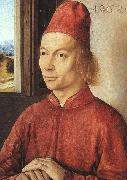

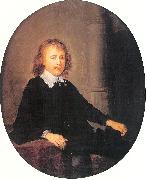
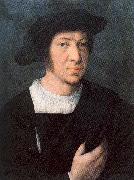
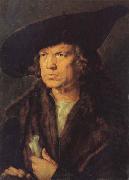
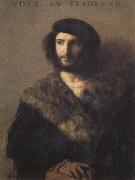
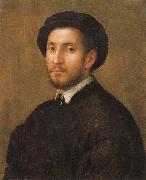
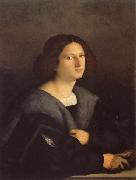
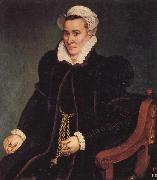
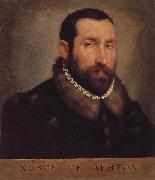
-454776.jpg)
